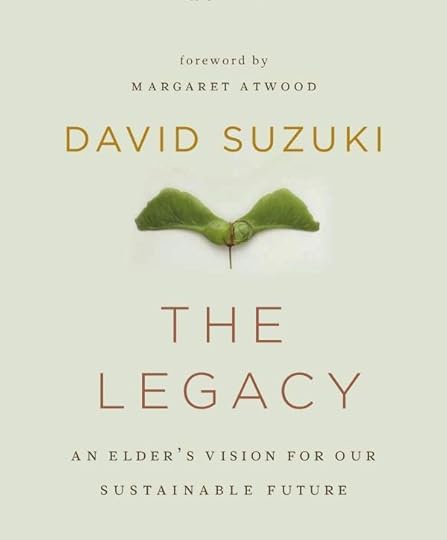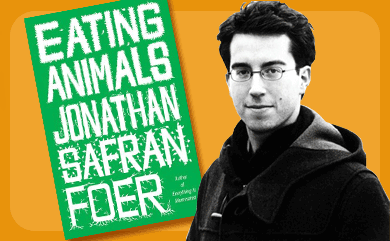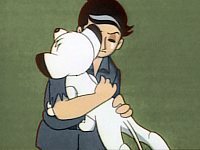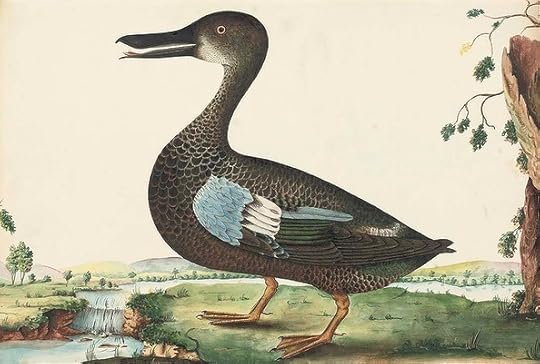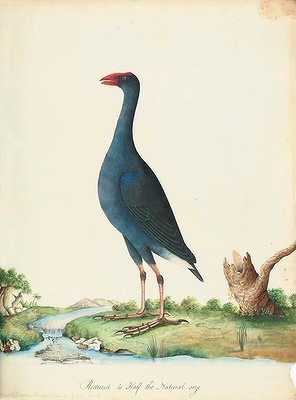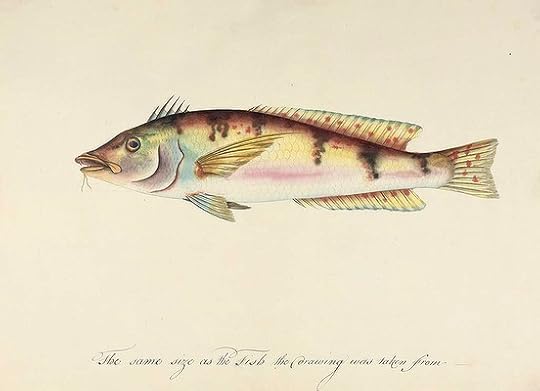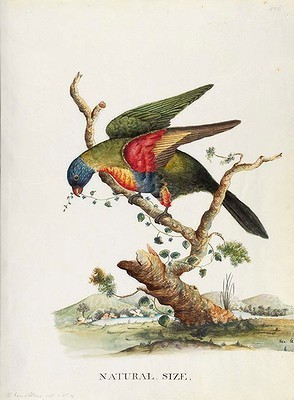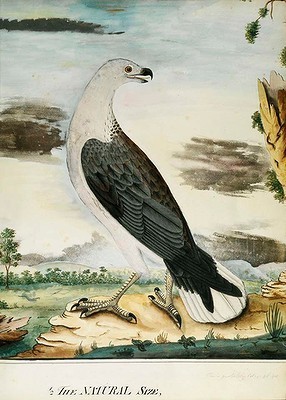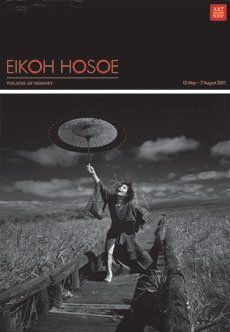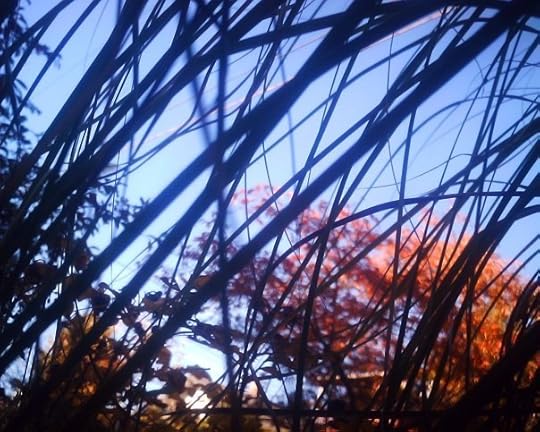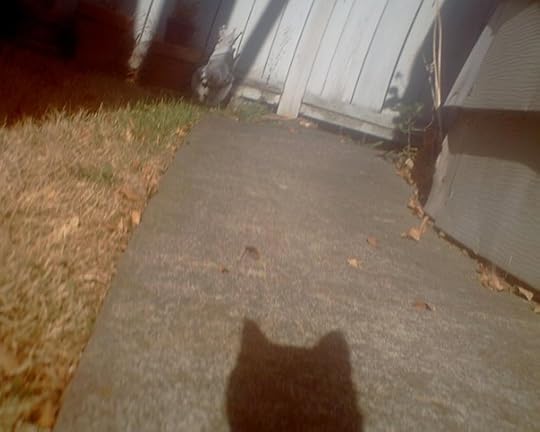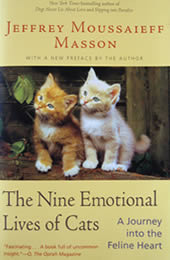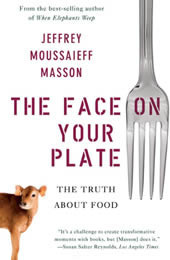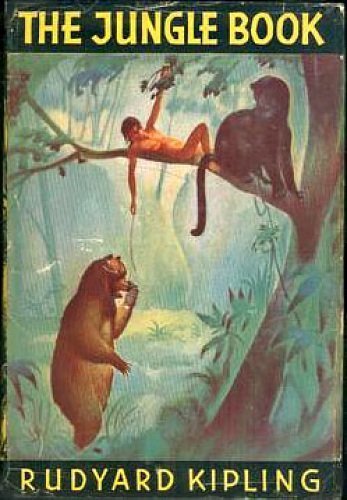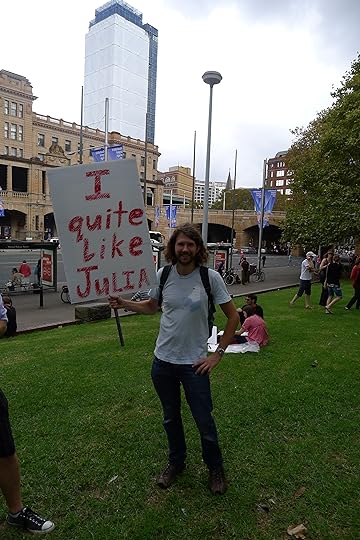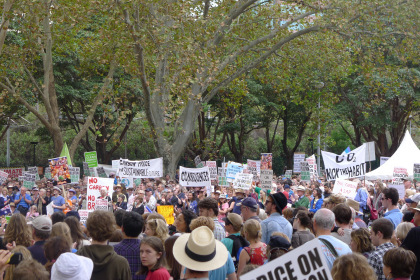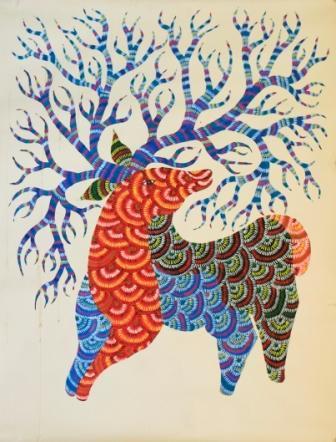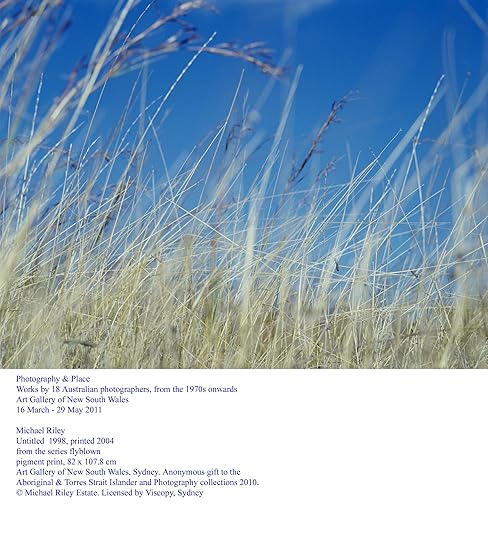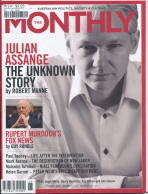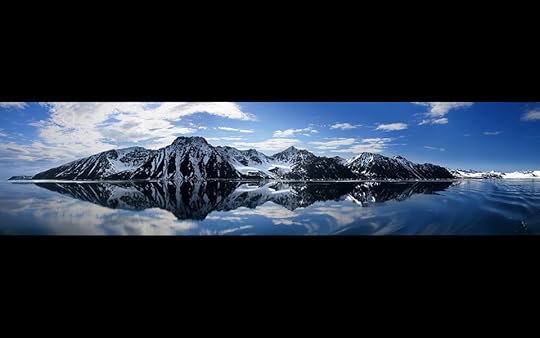Anthony Bourke's Blog, page 32
October 7, 2011
Leadership, Israel & Palestine, GFC (II), David Suzuki, Wade Davis, Leonardo DiCaprio, Tony The Tiger, A Lion Called Christian, Australian Animal Studies Group, Minding Animals International, Jonathan Safran Foer, Food, John Darling

Bundeena, NSW photo by Ace Bourke
LEADERSHIP: We are being failed by our leaders – or perhaps we get the leaders we deserve? We are entitled to criticise them as they have pushed themselves forward. Obama has put his own re-election prospects above the Palestinian people and he has lost me. Blair tries to be all things to all men – from invading Iraq, to being on JP Morgan's payroll, to friendship with Gaddafi, to being the Middle East Envoy. One could argue that this makes him ideally suited to play his role – or should disqualify him. I think he has lost all credibility.
In Australia our entire political discourse seems aimed at shock jock audiences in marginal seats. Our government is examining every possible angle to send our relatively few asylum seekers (including children) back to anywhere rather than fulfilling our international obligations. I am losing a little faith in democracy – or compulsory voting at least – and for global problems like global warming, I wish for a more powerful and corruption-free UN type organisation.
GFC (II): We seem to be on the brink of a world recession or have never really recovered from the GFC of 2008. Again there is an outrageous failure of leadership politically, economically and financially. Everyone is caught by surprise again, and there seems to be no coherent response. It was not reassuring for trader Alession Rastani to say bankers at Goldman Sachs "rule the world", and that he dreams of another recession as "our job is to make money from it." The necessary structural reform for a new global era just hasn't happened. Short term jolts to the economies are not sufficient (although the stimulus measures in Australia were successful), nor are slashing government spending and taxes. Austerity measures and consumer pessimism are inhibiting the spending necessary to prevent going deeper into recession. Not that I understand these matters – but alarmingly neither do the so-called experts!
OCCUPY WALL STREET: I've been blogging about 1% of the population owning so much wealth, and it seems that finally enough is enough. The Left has finally emerged revitalised and galvanised into action. The growing disparity between the rich and poor is the greatest challenge of our time. The Occupy Wall Street and The Other 99% movement is spreading quickly as the cause is so just – a concern for ordinary people. Count me in.

Bundeena, NSW September 2011 photo by Ace Bourke
ISRAEL & PALESTINE: This must be one of the major unresolved international relations issues of our time and after 20 years looks no closer to resolution. With the Israelis insisting on the Palestinians formally acknowledging Israel as a Jewish state and Palestinians insisting on a freeze in settlement growth, the situation has been described as "utter hopelessness" after the performances by their respective leaders at the UN. It does seem provocative at the moment for Netanyahu to be determined to push ahead with the construction of one thousand new houses to be built in a large settlement in East Jerusalem. With the "Arab Spring" and the loss of Turkey and Egypt as allies, Israel is facing a new and shifting scenario, and you'd think a new and more conciliatory approach is urgently required. This is the dilemma that Obama is trying to juggle – very unsuccessfully.
Let's hope for a new paradigm, a new generation of courageous and imaginative leaders, and more economic cooperation and partnerships. I did read that young secular Israelis are more concerned with the high cost of living than "security" and are wondering how Israel will support itself with the attitude among some Orthodox Jews that not paying taxes is acceptable. Apparently they have on average 8 children and will be the majority in thirty years.
DAVID SUZUKI: I recently read The Legacy which is a summation of Suzuki's experience and knowledge and vision for the future. My immediate thoughts were why aren't wise Elders like him utilised by our governments to solve some of our urgent problems?
He succinctly summarises our natural and human origins and what we and the biosphere consist of in a way that a layman like myself can understand.
In 1992 1,700 senior scientists signed the World's Scientists' Warning to Humanity. "Human beings and the natural world are on a collision course. Human activities inflict harsh and often irreversible damage on the environment and on critical resources… No more than one or a few decades remain before the chance to avert the threats we now confront will be lost and the prospects for humanity immeasurably diminished." So in 2011 one wonders if the tipping point in relation to the atmosphere, water resources, oceans, soil, forests, species and population may have been reached.
Issues and subjects he discusses which particularly interested me include: we face a doubling of population, and uncontrolled growth is suicidal; economic growth versus the environment and how a price can actually be put on nature's services; how consumerism was actively encouraged and why it should now be discouraged; 99% of our genes are identical to the genes of the great apes; we have an innate need to be with other species and that all of life is our "kin."
Despite the damage and depletion of resources he has observed throughout his life, he is however quite optimistic and discusses various ways forward. He discusses all the unforeseen technological benefits that actually flowed from the USSR and US "space race" and what could be achieved by the concerted action of "joining together in a common goal and a commitment to confront our enormous ecological challenges." But change "begins with each of us."
Suzuki discusses how indigenous people understand how we are the environment and that their very survival has depended on their ecological awareness and adjustment.
I have worked for many years as a curator with Aboriginal artists, but over the last few years because of the Christian the Lion phenomenon I was suddenly given the chance to talk about animal welfare, conservation and environmental issues. But my two major concerns are linked because it is of course indigenous people that can show us how to care for and tread lightly on the environment we entirely rely on.
[image error]
Bundeena photo by Ace Bourke
WADE DAVIS: While Suzuki is concerned with the biosphere, fellow Canadian and ethno botanist Wade Davis is concerned with the "ethnosphere" – which is described as "the sum total of all thoughts and dreams, myths, ideas, inspirations and intuitions brought into being by the human imagination." He is National Geographic's Explorer in Residence.
Friends had told me about him over the last year or two, and I read some of his articles. Recently I finally had the chance to attend a talk by him on Human Migration at the Australian Museum. He was very knowledgeable, sophisticated and articulate – nearly too good to be true! He reminded me of Australia's own brilliant ubiquitous know-all Tim Flannery. Wade seems to have lived with or visited many obscure indigenous people in the world, tried many mind-altering drugs, and written many books about his experiences, all of course illustrated with his own excellent photographs.
What really sticks in my mind? Previously he had written extremely well about our own Australian Aboriginals and in this Oration he did say they were the first wave out of Africa. A sample of an Aborigine's hair collected a century ago demonstrates that they left Africa 62,000 – 75,000 years ago and were the first of multiple waves of migration that travelled through Asia and interbred with recently identified archaic humans called Denisovans.
Davis is primarily concerned with all the knowledge that we are losing as languages disappear. He commented on the extraordinary Polynesian navigational skills as an example of ingenuity that could sometime be at risk. He also talked about what is catastrophically lost with deforestation. His studies include the so-called zombie drugs in Haiti, and his extensive travels include Tibet, Peru and the Amazon. I haven't really done him justice as he talked very quickly and bombarded us with interesting information which I struggled to digest while also watching a quick succession of marvellous photographs.
Importantly, he too is optimistic about the future. He remarked on our capacity to change our attitudes. One example he gave was the attitude to gay people over the last 20 years, and the present debate about gay marriage which previously would have been unimaginable.
Wade Davis was giving the Thomas Foundation Conservation Oration, in association with The Nature Conservancy (TNC). TNC has been working in Australia since 1999 and is already helping to protect more than 6 million hectares and supporting conservation across more than 30 million hectares of largely Indigenous lands. TNC takes a collaborative non-confrontational approach to conservation that is based on sound science and their efforts are very much worth supporting www.nature.org/australia. There are conservancies all over the world, and I have previously referred to several in Africa. I think they are an excellent concept: preserving large continuous tracts of land and natural and traditional animal migration corridors, rather than piecemeal areas.
LEONARDO DICAPRIO: Leonardo is in Sydney filming The Great Gatsby. He has demonstrated a deep commitment to environmental concerns. He has financed films such as The 11th Hour about the convergence of environmental crises and the need for leadership which he produced and narrated. He has donated $1 million to the WWF to help save the tiger from extinction. When he recently tweeted about the campaign concerning tigers in captivity in America, my agent immediately sent him a copy of A Lion Called Christian, and we hope to draw his attention to the plight of Tony the Tiger which he is most probably already aware of.
TONY THE TIGER: I emailed the Animal Legal Defense Fund (ALDF) for an update and they replied. "The court has scheduled two new hearings in the Tony the Tiger case. On October 17th, the court will hear the States' exceptions, which challenge the plaintiffs' standing to bring the case. On November 2nd, the court will hear ALDF's motion for a permanent injunction to revoke the permit that lets Michael Sandlin confine Tony at the Tiger Truck Stop."
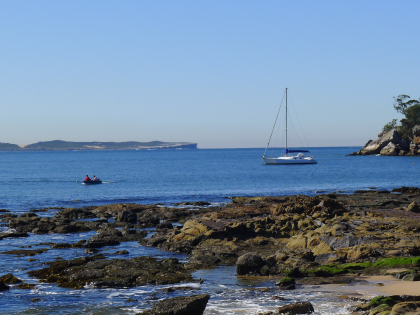
Bundeena, NSW September 2011 photo by Ace Bourke
MISC STATS: 2,600 Syrians killed so far in their protests; 60,000 anti nuclear protesters take to the streets in Japan; Rupert Murdoch owns 70% of the metropolitan newspapers in Australia and the family own 40% of the voting stock in News Corp; 71% of the earth is covered by ocean; according to author and birdwatcher Jonathan Franzen 9 million birds are killed by cats in the US each year.
AASG: The Australian Animal Studies Group (AASG) has emailed their latest bulletin. It contains a lot of information, especially reviews of very interesting books. There is also news of upcoming events and conferences, and new courses such as Humans, Animals and Society at Flinders University South Australia. There is a report on the recent Global Animal Conference which was about the implications of globalisation for animals, and I was on a panel in one session.
MINDING ANIMALS INTERNATIONAL: I have also just received their Bulletin No.7 There are fascinating conferences all over the world including: Barcelona 24-25 October, Oslo, Prague, New York, Uppsala in Sweden, Rennes in France, Geneva, Vancouver, Berlin and Buddhism and the New World Order: Compassion, Animal Welfare and Conservation in New Delhi in November 2011.
FOOD: I attended a talk entitled What We Are and What We Eat by Jonathan Safran Foer, author of Eating Animals. He discussed how it is often difficult even having conversations about vegetarianism. In the US 99% of meat and chicken is factory farmed. Factory farming is the single worst thing for the environment, and for animals. He framed the discussion and his arguments amusingly and well. Rather than recommending people become vegetarian (although he wants us to), he suggests we all eat more vegetarian meals. I think he wants us to become vegetarians by stealth.
With television programs such as MasterChef and various food festivals, people must be getting better educated about food and better diets, and alternatives to meat. A gathering of chefs, scientists and the now obligatory wild food foragers, met recently in Copenhagen to find solutions to the planet's food problems (Mad ideas to save the world, SMH Good Living Tuesday 27 September). With the population rising from nearly 7 billion to 9 billion by 2050, food production needs to increase by 70%. "Vegetables will come from rooftop gardens and community plots; fish will feed off plankton in our kitchen tanks; ants, worms and grasshoppers will flavor breads; urban beehives will supply our honey; soil will be an ingredient(!); and meat will be a rare treat."
I also recently watched a program on genetically modified food. It was a reminder of how our food has been tampered with over many years. I'm not sure however, I want to eat food which contains antibiotics and insecticides, especially as there seem to be no long-term tests yet of the effects of their toxicity.
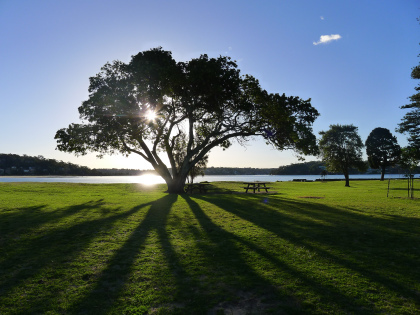
Bundeena, NSW July 2011 photo by Ace Bourke
PETS: 63% of Australian households have pets and it is one of the few sectors of our economy which is actually growing. I hate pet accessories let alone costumes, but love it that we are lavishing attention on our pets and hopefully feeding them nutritious foods.
PROJECT NIM: This sounds a terrifying if fascinating documentary about Nim, a chimpanzee brought up as a human to see if primates can be taught to construct sentences with sign language. He was born in 1973 the year Christian was last seen. I think we learned more from Christian than vice versa, and he certainly wasn't an 'experiment'. While he may not have lived as long, Christian's life was much happier. We only had a short time with Christian and it was primarily a success because he was young. Lions are family/pride animals and Christian was so good natured, and as a cub was open to a degree of domestication and socialisation – up to a point!
JOHNNY DARLING: One of Australia's leading documentary makers (the classic Lempad of Bali and extremely lyrical Below the Wind etc) is seriously ill, and many of us love him dearly and have treasured his intelligence, wisdom, humour, encouragement, creativity and friendship over the years.

 [image error]
[image error]



 [image error]
[image error]
September 9, 2011
Aboriginal Art, Scott Sisters, Dolphins, Ivory, A Lion Called Christian, Buffet, Dewey, Marley, Red Dog
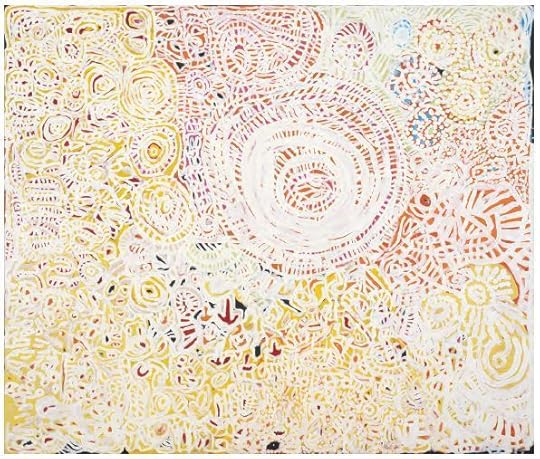
Telstra Art Award - Kanyalakutjina (Euro tracks) acrylic on canvas by Dickie Minyintiri
ABORIGINAL ART: This painting by 96 year old Dickie Minyintiri has won the 2011 Telstra National Aboriginal and Torres Strait Islander Art Award. To the initiated clan elders, this painting is a map of their country, especially the waterholes, the tracks of animals, and related ceremonial activities – and much more than we will ever know. You can view the exhibition online and see the diversity of Aboriginal Art. It seems Central and Western Desert paintings predominate in this exhibition, but this is often the case. Isn't it amazing that such contemporary looking paintings are by people living in remote areas still speaking their own languages and where traditional ceremonies are still strong, although this way of life is under threat.
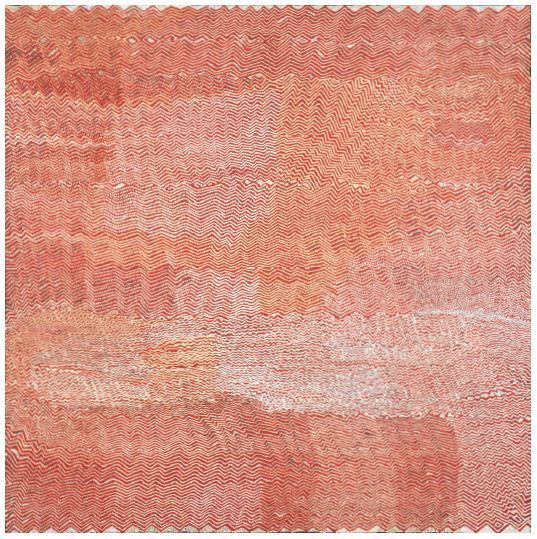
Telstra Art Award - Untitled synthetic polymer paint on linen by Bobby West Tjupurrula
We are going into spring here in Australia and the weather in Sydney has been warm and sunny, but still a little cool at nights. A magical time of the year. I feel fine myself, but this is tempered by the bloodshed in the Middle East and the atrocities being uncovered in Libya, and the determination of the Syrian Government to violently repress their people.
UNNERVING: to discover recently the US and UK government's cooperation and complicity with Libyan intelligence; just how cosy Blair was with Gaddafi; that Blair is a godfather to a child of Rupert Murdoch and worked against further investigation of the phone hacking; that the Chinese were selling arms to Libya as late as July; and that Bush's White House ignored or buried relevant evidence about the connections between the 9/11 hijackers and his Saudi Arabian friends. As we reflect on the horrific loss of life ten years ago (and the many subsequent military and civilian deaths), let's try and learn from the inappropriate and failed response of the so called "War on Terror".
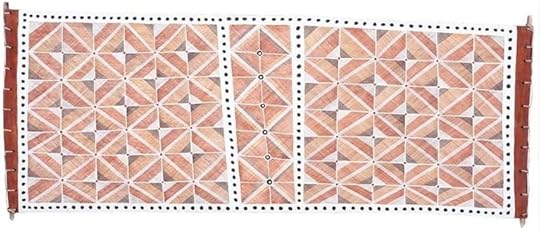
Telstra Art Award - Stone Country natural pigments on bark by Ivan Namirrkki
FOREIGN AID: At last there seems to be a rethinking of how ineffective some Foreign Aid has been in the past. Much of it has propped up big man despotic leaders rather than reaching the people who need it. Of course the Chinese seem to be everywhere and are at least building infrastructure and one hopes the populations will benefit as much as China will. Obviously droughts cause crops to fail, but peace and stability is also required to prevent famines. The colonial carve up in Africa after 1885 is responsible for so many unrealistic and unnatural national borders that many countries have too many disparate tribal groups – a problem facing Libya where three very different rebel groups will now have to work together. Foreign Aid has also disadvantaged local enterprises in the past. Now there are initiatives to fund specific projects in villages, overseen by local councils, and for better transparency and accountability, accounts are publicly displayed.
We must not forget the millions suffering with the famine in Africa and I hope given the millions of people effected, donations and aid are getting through as effectively and quickly as possible. In Haiti for example, of the US$21.1 billion raised for the 2010 earthquake victims only $286 million has been obligated, and many thousands are still living in tents.
You can donate to the UNHCR's East Africa Famine Appeal at www.unrefugees.org.au.

Charaxes Australis AMS 193/18 original watercolour by Helena Scott
SCOTT SISTERS: Two Australian sisters Helena and Harriet Scott painted between the 1840s and 1860s. Their exhibition Beauty from Nature is at the Australian Museum, Sydney. The artworks have been drawn from the 100 preliminary botanical drawings and watercolours purchased in 1884. These sisters were cousins of David Scott Mitchell that I have blogged about previously, and I am proud to say I am also a relation.
SPECIES: Apparently there are an estimated 8.7 million species on earth – 6.5 million distinct forms of life on land, and 2.2 million in the oceans, with 85% yet to be discovered. Some species of course may vanish before we even know of their existence. In Australia more than 100 plants and animals have disappeared in the last two centuries, with many critically endangered. The International Union of Conservation of Nature predicts that 30% of the world's wildlife will disappear by 2050. Creating some controversy is the proposal by some scientists to use economics and mathematics to develop analyses of which animals should be saved and which ones should not, and are already prioritising recovery programs. Read the article Survival of the Cheapest SMH, 11 August 2011.
What can we do, apart from donating? According to the Sydney Sun Herald: take rubbish, especially plastic from the beaches; stop pets hunting wildlife; grow native plants as a haven for wildlife; buy furniture timber from sustainable sources; and eat sustainable seafood.

Chelepteryx Collesi AMS 193/92 original watercolour by Harriet Scott
Unfortunately in our Asian region there is a vast wildlife trade in poaching, smuggling and dealing in protected species and their body parts, much of it for traditional medicines. Lately there have been reports of tigers being "farmed" in China, like the horrific farming of bears for their bile elsewhere in Asia. The Global Financial Integrity group using information provided by conservation groups Traffic and the World Wildlife Fund have estimated recently that the illegal trade in wildlife generates up to $US10 billion.
Australia's live cattle exports have resumed to Indonesia seemingly without any new and effective enforceable safe guards, and questions have been raised about Australian sheep exports to Turkey. Interestingly, after the huge public outcry over the TV footage of the treatment of cattle in the abattoirs in Indonesia, public sentiment then swung to the cattle producers, and the government was then pilloried for the economic damage to the industry caused by the suspension of trade.

Polio Festiva AMS 193/14 original watercolour by Harriet Scott
THE COVE: I finally saw The Cove and it is a devastating documentary. September marks the beginning of the slaughter of up to 23,000 dolphins and porpoises in Japan. "Traditional custom" is no longer an excuse. Apparently many younger Japanese are questioning the harvesting of dolphins and porpoises for captivity and food (which often contains dangerously high mercury levels), and their whaling activities in the Antarctic, and the Japanese media are finally asking questions. We should all actively oppose and protest. I hope you will sign this petition.
FAROE ISLANDS: I have once again been sent an email petition to oppose the slaughter of whales and dolphins in the Faroe Islands. The images and blood in the water was almost unwatchable. Unfortunately this petition is now closed, but investigate other opportunities to protest.
TARONGA ZOO CAMPAIGN: There are only about 400 Sumatran tigers left in the world primarily because their forests are being cleared for unsustainable farming and forestry, including palm oil plantations. Taronga Zoo supports sustainable palm oil production that does not destroy vital animal habitats. Zoos are working together to petition for the mandatory labelling of all food products containing palm oil. You may also want to sign this Don't Palm Us Off petition.
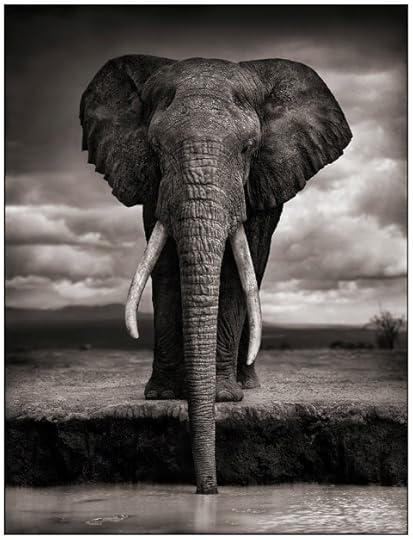
Nick Brandt - Elephant Drinking, Amboseli 2007. Courtesy of Source Photographica.
AGONY AND IVORY: In the August issue of Vanity Fair there is a quite terrifying article charting what could be the extinction of the African elephant. The demand for ivory, especially from the older "suddenly wealthy" Chinese in the main ivory carving and trading district of Guangzhou is seeing possibly tens of thousands of elephants being slaughtered each year, and a "vortex of extinction" is feared. Half the poaching in Kenya is happening within 20 miles of one of the five massive Chinese road-building projects. But ivory is also funding warring rebel groups in Africa, and in Zimbabwe many elephants are being shot by trophy hunting tourists, as well as being killed to provide food for a hungry population.
There are people in China also deeply concerned about the ivory trade and the diminishing elephant numbers, and as we discovered when we visited China, the Chinese Government is much more committed to conservation than I had imagined.
These are most of the people who are mentioned in the VF article that are fighting to save the African elephant: Amboseli Elephant Research Project; Kenyan Wildlife Service; Save the Elephant; Traffic; IFAW; WildAid; MIKE; Johnny Rodrigues; Andrea Turkalo; and Iain Douglas-Hamilton. We must help in any way we can and especially stop people buying ivory.
CLIMATE CHANGE: The www.skepticalscience.com website clearly explains the peer-reviewed scientific evidence that rebuts misinformation disseminated by so-called skeptics of climate change.
Robert Manne in an article in the Quarterly Essay, Bad News: Murdoch's Australian and the Shaping of the Nation analyses The Australian newspaper's total coverage of climate change including news items and opinion columns, and by a ratio of about four to one, they have opposed action on climate change or "acting alone". (Apparently 90 countries are committed to some action). Their blatantly biased reporting against the Government would be of similar proportions. It looks like it is about to get very difficult for James Murdoch in the UK very soon.
Coal seam gas exploration in Australia, with tens of thousands of gas wells planned or approved, is at last being questioned in relation to the damage to the water table and the effect of the chemicals used in the process. The cost effectiveness of wind farms is also being questioned or reviewed.
MISC STATS: Apple have $76 billion in ready cash (more than the US Government); in Australia 1% own 20% of the nation's wealth and in the US it is 1% owning 40%; BHP Billiton announced a profit of $22.5 billion – and they opposed a mining tax; deforestation in Brazil's Amazon increased by 15% in the past 12 months; the Pope's World Youth Day event in Spain cost €60 million.
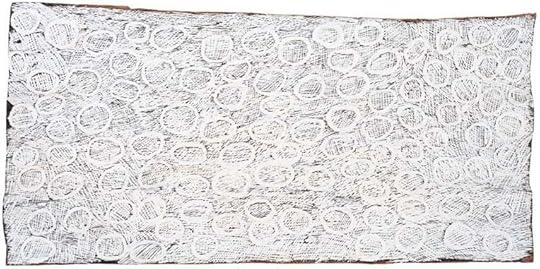
Telstra Art Award - Mayilimiriw natural pigments on bark by Nyapanyapa Yunupingu
BUFFET: It was interesting when Warren Buffet recently wrote "While the poor and middle class fight for us in Afghanistan, and while most Americans struggle to make ends meet, we mega-rich continue to get our extraordinary tax breaks." With America seemingly on the edge of a double dip recession, with unemployment at 9.1%, 14 million people out of work and zero jobs growth, this just seems incomprehensible. The wealthy refuse to pay enough tax necessary to maintain infrastructure or support the impoverished, and consequently nearly one in a hundred Americans are imprisoned. The sophisticated US Ambassador to Australia Jeffrey Bleich has recently said that without the tax breaks, the top 1% in America could be contributing $500 billion in the first year alone. One does have to ask, is there any concept of "national interest"? Are the conservatives prepared to wreck the country just to reclaim political power which they see as their entitlement? Exactly the same thing has been happening here in Australia, where a shrill and negative but effective Opposition, aided by shock jocks, has convinced a large section of the population that our current Government – the envy of the world economically, is a catastrophe. They are contributing to undermining consumer confidence in a time of global financial uncertainty and obstructing necessary reforms like a carbon tax. I really despair.
DEWEY AND MARLEY: Over the last year or so I've looked rather enviously at two books that are always prominently displayed in airport bookshops. So I thought it was time to read DEWEY The Small Town Cat Who Touched the World (by Vicki Myron), and Marley & Me: life and love with the world's worst dog (John Grogan).
I was very amused when I was in a book shop thinking of buying Marley's book and I asked "what is it like?" and the response was "I much preferred the one about the lion – A Lion Called Christian"! Our book is about an extraordinary animal, indeed an exotic one, but most people can probably relate more easily to stories about an ordinary cat and dog, albeit with strong attractive personalities. Their books take in the span of their animal's natural lives, and are autobiographies of the authors. Our book covers just a few years in our lives, and was written when we were in our early twenties.
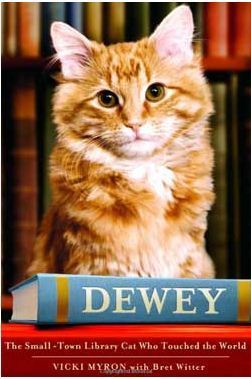
Dewey by Vicki Myron
Dewey the cat had great confidence, a certain charisma, and yes, he was very cute. The book paints a picture of a small rural town in Iowa struggling to remain economically viable. I'm not sure Dewey turned the town around as implied, but his national and international fame has put it on the map. "We didn't want him to be anything more than the beloved library cat of Spencer, Iowa. And that's all he wanted too." In trying to analyse Dewey's attraction Myron writes "He found his place. His passion, his purpose was to make that place, no matter how small and out of the way it may have seemed, a better place for everyone." Each day he "never left anyone out or took anyone for granted… and he made everyone feel special."
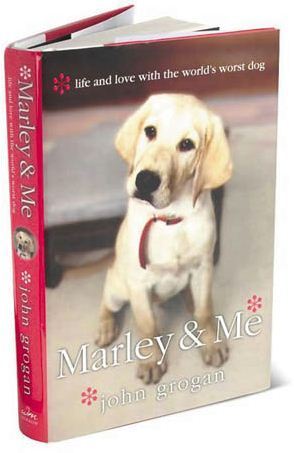
Marley & Me by John Grogan
Marley's book is a little more sophisticated, indeed the author is a writer. The idea for the book must have come from the response to an article he wrote (with some hesitation) after Marley's death which unleashed a deluge of over 800 emails and communications from people. He commented "Animal lovers are a special breed of human, generous of spirit, full of empathy perhaps a little prone to sentimentality, and hearts as big as a cloudless sky." And I recently read we are apparently 30% less likely to have a stroke.
Marley was, let's face it, quite mental and very destructive, but apparently he had intuition and empathy, gentleness and a pure heart. He was completely entwined with his family who just adored him and felt his loss very deeply. Grogan writes "Marley taught me about living each day with unbridled exuberance and joy, about seizing the moment and following your heart. He taught me to appreciate the simple things… about optimism in the face of adversity… friendship and selflessness… unwavering loyalty."
Marley taught them about unconditional love.
Both writers felt that their animals had the simple qualities that really matter, that many humans have lost sight of. They were just authentically themselves. I loved their stories and understand why they have captured so many hearts. I had a good cry when they died.
Incidentally, I have been told by vets that 12 or 13 are dangerous years in the health of cats and dogs, and if they survive this period can live up to 20. Marley died at 13 and Dewey died at 17. Lately in Australia there have been some horrific dog attacks on people. Certain breeds have been targeted and there are suggestions that they be banned. However, this would be circumvented by cross breeding, and experts say it is the socialization of the dog that is important, often requiring work (and vigilance) by the owners.
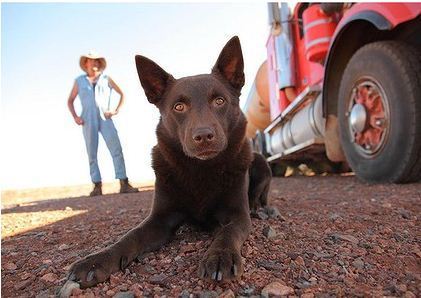
Koko in Red Dog
RED DOG: See Koko's superb screen test to play Red Dog! The film has been doing very well and although I haven't seen it yet, I know it is a legendary story.
While reading about Marley, Dewey, the elephants, the responses to Christian's birthday blog, or watching the dolphins in The Cove, someone in every story, no matter which animal, said "They are trying to communicate with us." Are we listening? What do you think they are saying?








August 11, 2011
Happy Birthday Christian!

Christian, January 1970. Photograph by Derek Cattani.
HAPPY BIRTHDAY CHRISTIAN! Christian was born in a small zoo in Ilfracombe, Devon, U.K. on the 12th August 1969. For some mysterious reason so many years later his story is still capturing people's hearts and imaginations, and I get even more mail about him now describing the effect he has had on people's lives. His extraordinary personality and loving nature remain so fresh in my mind. Memories are kept alive and revitalised by the superb photographic record which so easily conveys to others Christian's magic.
We have been asked what we think the revival of interest in Christian means. In an interview, 0ff the top of my head, I said I thought it was "a cry for Africa" from Christian – perhaps a cry from an animal world under threat, and a world facing great challenges through climate change, water shortages and shrinking animal habitats etc. There are 70% fewer lions in Africa since Christian's time and through him we have been given the chance to talk about frightening statistics like this – happening to species everywhere.
Looking back, Christian seemed to have been marked for a special destiny and we were all just stepping stones along his journey - back to Africa and his freedom no less, after 5 generations of captivity in Europe. He has become a symbol of human-animal relationships, an ambassador for conservation and animal welfare, and a heart-warming story at a time when there is great economic uncertainty and people need cheering up. I don't entirely understand all the psychological aspects of the phenomenon - perhaps I'm too close to it, but primarily it is about the reciprocated love for some humans that Christian felt, demonstrated, and remembered.

Christian's favourite spot on the stairs. Photograph by Derek Cattani.
Many emails or comments on the blog mention that we "rescued" Christian, or how sad we must have been to leave him. We joke he was an "impulse buy", and for me it was part adventure and fun, part pushing one's luck, part rescue. We thought we could look after him as well as anyone else at his young age, and we did. More naively, we thought we could secure his future as well as anyone. Bill Travers and Virginia McKenna were certainly "rescuing" him, from London, from a possible life in a zoo, and probably from us! We did come to realise how by buying Christian we were participating in and perpetuating the trade in exotic animals, which became illegal in the U.K. in 1976.
With Christian growing too big for us to physically handle, it was a miracle that the opportunity to return him to Africa, to George Adamson, occurred. So while leaving him there - three times – was very upsetting, this was absolutely the best solution – him taking his chance at a natural life, although it was very dangerous for him. We thought we would be continuing to visit George and Christian. While it was indeed a great adventure, a joy and a privilege, it had also been a huge responsibility and a 100% commitment to ensure everyone's well being and safety.
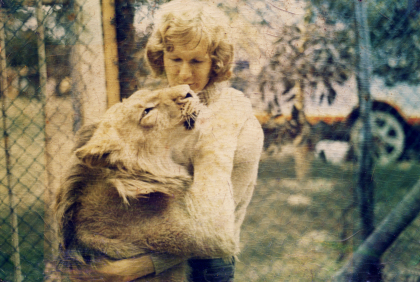
Christian and Ace at Dorking 1970. Photograph by Derek Cattani.
DEREK CATTANI: One major reason why Christian is still so vivid in my mind, and why Christian is loved so widely, is in addition to the two documentaries made about him at the time, his life in England and return to Africa was so beautifully photographed by well known London photographer Derek Cattani.
The media was interested in Christian, but invariably a photograph of a yawn would appear like a snarl, and we were very fortunate to meet Derek Cattani in January 1970 who became Christian's friend and photographer. Derek has had the most illustrious career, including photographing the Queen, PMs and Presidents, Nureyev and Elizabeth Taylor, sporting stars and historical moments at Olympic Games. He has said however, that by awakening his concern for animals Christian "changed my life".
I asked Derek would he choose a favourite photograph of Christian for this birthday blog. He responded that it was too difficult – he loves them all! He described how he just gradually got to know and be trusted by Christian by quietly and patiently spending time with him. He began when Christian was 5 months old. I have enjoyed looking at the photographs through Derek and Christian's eyes and the lovely relationship that developed. Christian is often looking directly at him, and not just out of curiosity. Indeed, he always seemed "ready for my close up Mr. de Mille"!
Derek wrote "Christian had the most penetrating eyes I have ever experienced either animal or human. It was as if he was looking beyond a space in time, an adventure yet to unfold, we would make eye contact and he would at times focus through me, as if to be watching the next episode of his life in Africa, which we were all to experience later on that year." This is why I particularly like the photograph at the top of this blog. It shows Christian's all seeing, all knowing, enigmatic and beautiful eyes. It is also one of the earliest photographs of him – at five months old he is just about to leave his baby cub days behind, and beginning to grow into his big ears and paws.
I have always loved the photograph of Christian sitting on the stairs at Sophistocat. This was his favourite spot and we could get on with our jobs nearly forgetting he was sitting there, watching everything.
I have included the (bottom) photograph of the garden at the Moravian Close because of so many great memories. He loved playing there every afternoon and was completely safe, so we could also relax and enjoy it. He looks boyish, with his soccer ball at the ready, if punctured. The "hug" photograph at Dorking has only been seen rarely and is showing its age after being pinned to my mother's kitchen wall for many years.
KIMBA THE WHITE LION: I have finally watched some episodes and I love Kimba! I didn't watch Kimba when I was growing up in the 1960s when it was the first animated television series made in Japan in colour. I suspect it was very innovative animation, and I love some of the influences, like Japanese wood blocks. Unlike much contemporary animation, Kimba is just so nice and conciliatory, yet firm. Christian too was like a prince and although the centre of attention, he was very cooperative and friendly. Kimba and Christian were both very smart. They both wanted to live in peace, make friends, "doing good, doing right". There are some uncanny narrative and visual overlaps – their returns to Africa, Kimba with Roger, Christian with us, Kimba in Paris, Christian in London etc.
Craig Andersen's Kimba website which now has a lot more information about Christian, is where Lisa Williams first found Christian's footage, and she posted it on YouTube. Later TadManly2 added the Whitney Houston backtrack and edit which contributed to sending it viral.
Craig wrote to me last year (Late Feb 2010 blog) and told me that the creator Osama Tezuka wrote the story in 1950 to explore the idea of animals and humans living as one society.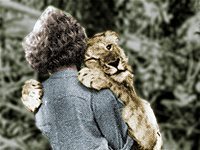
"Ever since I first read Christian's story back in 1972 I felt Christian had an important place in the world, as an "ambassador" from the animal world to the human world." It seems that Christian was the personification of the bridge between the animal and human world that the Japanese creator had envisaged with Kimba. And it was on Kimba's website that Christian was rediscovered in 2006 which lead to Christian's story being told to new generations.
NEW WEBSITE: To celebrate Christian's birthday we have developed a new and more comprehensive website www.alioncalledchristian.com.au. There are many Derek Cattani photographs of Christian, Christian's story, information on books, films and TV appearances, recent news updates and interviews etc. We'd love you to leave any comments about Christian – or tell us your own animal stories! You are contributing to Christian's story still unfolding by your interest and we thank you.
But most importantly today, Happy Birthday Christian! There is no way we could ever forget you or stop loving you.

Christian in the garden at the Moravian Close 1970. Photograph by Derek Cattani.








July 23, 2011
Rupert Murdoch, Global Animal, Carbon Tax, Michele Elliot, The Greens, Coal Seam Gas, Australian Aborigines, Four Corners Iron & Dust

Cartoon by Moir in the Sydney Morning Herald
SCHADENFREUDE: Yes, there is an element of this for many of us towards Rupert Murdoch. I love Moir's cartoons – he is one of our best. Murdoch is the classic example of the 1% owning 40% of the wealth I blogged about last time – those 200 jobs were the first to be sacrificed at the News of the World. Politicians do his bidding as we know – and I read he encouraged Blair to join the invasion of Iraq. Hopefully his influence on them will now diminish. The complicity of the police was particularly shocking, but then, not so surprising. He owns 70% of the print media in Australia and unashamedly pushes his own right-wing agenda – virtually calling for regime change no less at the moment. The Government or important issues are not given balanced coverage in his newspapers. I could give you many examples but that would be boring. There are some very good journalists working for The Australian, and they must often feel compromised. Perhaps we readers are also complicit – Rupert's touch has been identifying what his readers want – gossip. John Dean, who spent 4 months in prison over his involvement in the Watergate cover-up years ago in the US, says that the scandal will keep running until Murdoch resigns – as President Nixon had to. He quotes a source that says that money, not ideology, is Murdoch's prime motivation. See John Dean's The Essay, "Murdoch's dilemma: himself" Sydney Morning Herald July 23-24.

Cartoon by Moir in the Sydney Morning Herald
We white Australians have only relatively recently begun to address our real history. Respected historians such as Henry Reynolds have researched extensively and revealed for the first time the scale of the massacre of Aboriginal people as we took over their land. The anthropologist W.E.H. Stanner called this in 1974 "the great Australian silence". Guess who campaigned in his newspapers seemingly daily for years through a very controversial "historian", to dispute and minimise the numbers of Aboriginal deaths? This is why I will never forgive Rupert Murdoch. Click here to sign the AVAAZ petition to end Murdoch's media monopoly in Australia.
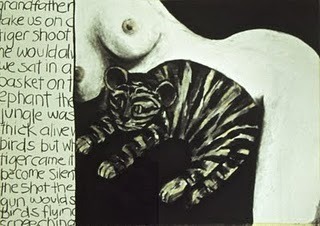
Drawing on Memory, Michele Elliot, 1992 (detail)
GLOBAL ANIMAL: I was on a panel recently at this very interesting Global Animal conference at the University of Wollongong. Human-animal relationships are a fast growing field in animal research, and I suppose Christian is a symbol of that! In this academic environment I felt like the light relief. Our YouTube reunion footage with Christian was shown and one participant expressed annoyance at the "disconcerting" Whitney Houston backtrack, and that the "greeting card" sentiments about forwarding the video to "someone you love", detracted from the human-animal relationship. I was a little taken aback as people are usually so pleasantly uncritical! I said I personally get swept along with Whitney's song "I'll always love you" (actually written by Dolly Parton), and that I didn't mind the footage being co-opted as a general message of love. But I acknowledged the point that was being made, and should have replied, "without Whitney and the viral "love" nature of the video, would it have reached so many people, and would I actually be sitting here?" Do see fellow panelist and artist Michele Elliot's blog –michelelliot.blogspot.com. It is one of the most interesting and elegant ones I have seen. She is one of the growing number of artists who are interested in human-animal relationships. Click here to see her story behind the Tiger image.
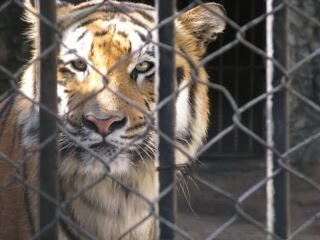
The Gift, photograph by Michele Elliot 2009
CARBON TAX: Pollution tax! I know I sound like a cracked record…but this saga rolls on here and is still Topic A, and it should be an issue in most countries. Indeed in many countries the debate has moved on to solutions and the economic opportunities presented. The Government's policy was finally released and I respect the Sydney Morning Herald's economist Ross Gitten's assessment in his article "Gillard's imperfect carbon plan is just that little bit better". The price for carbon emissions starts at $23 a tonne, the 500 major polluters will have some incentive to reduce emissions, households will be compensated, and there are billions of dollars for the development of renewable energy sources.
I thought the tide was beginning to turn in the Government's favour, although a recent poll gave them only 26% of the primary vote. Luckily the election is 2 years away. This is the government that got us through the GFC better than any other country in the Western world, but who just can't sell this achievement. Today's headline however was "Big Business has declared war on the Federal Government". Like the Republicans at the moment over the US debt ceiling, they seem to view all taxes as against the national interest and a form of wealth redistribution.
However, a majority of economists back the Government's economic policies and direction, and at a recent conference 79% backed the Government's carbon tax over the Opposition's faux Direct Action plan and 74% also backed the Government's equally controversial Mining tax. The conservative Opposition just says "no" to everything, and with the support of the Murdoch press, ensure there is no considered debate about many important issues. Not surprisingly, consumer confidence is down.

Michael Leunig cartoon, in the Sydney Morning Herald
THE GREENS: We would have had a similar carbon emissions scheme by now if the Greens had not blocked the last one. This is an example of why I have some reservations about them, and I have had mail about both my endorsement and my concerns. I think the Greens vary from country to country, although they obviously share many policies and philosophies. As we have a hung parliament, and the Greens have the balance of power in the Senate (Upper House) they have considerable bargaining power. There is now a formal alliance between the Greens and the Government, and they insisted Australia must price carbon, which has led to the PM being accused of breaking an election promise. This is an on-going and serious credibility problem for her, and many people also dislike her for replacing Kevin Rudd as PM.
The Murdoch press hate the Greens needless to say. For example, there was a recent article by Andrew McIntyre in The Australian on the commissioned book The Greens: Policies, Reality and Consequences . He writes "In these (Green) policy formulations there appears to be a profound lack of appreciation or understanding of why our society is the way it is" and that their policies would have "catastrophic unintended consequences for this country". As Andrew McIntyre was the editor of the book, how could this be an objective review or article?
COAL SEAM GAS: there is rising opposition – on all sides of the political spectrum – to mining for coal seam gas which seems to be rapidly expanding everywhere from the suburbs of our cities to our prime agricultural land. There seems to have been little research into how the chemicals or methods used are contaminating or damaging the water aquifers and the effect this will have on food production in our increasingly valuable "food bowls".
CATTLE LIVE EXPORT: this trade to Indonesia has resumed as suddenly as it was suspended, although no new export permits have yet been issued. There are new animal welfare requirements, but this does not include stunning before slaughter.
MISC STATS: South Sudan is the world's 193rd nation and good luck to them although I don't know what their economic base is… there is a substantial increase in the number and ferocity of natural disasters – 60 in 1975 and 321 in 2009 with 75 million people affected in 1980, and 250 million in 2007… the Queen cost $48.05 million for the year… 161,653,000 pounds was won by a couple ina lottery in the UK…Sydney is the 6th most expensive city in the world (after Tokyo, Oslo, Osaka/Kobe, Paris, Zurich)… 95% refugee applications in Australia are approved, and make up only 2.5% of our migrant intake.
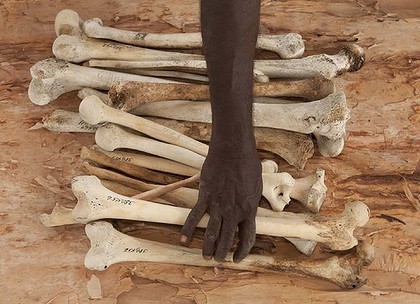
Photograph by Glenn Campbell, Sydney Morning Herald
ABORIGINES: They have been fighting many years for the repatriation of tens of thousands of aboriginal body parts from museums around the world that were ostensibly for "scientific purposes" but were mostly "trophies". Most of these bones in the photograph were collected in 1948. They have been in the Smithsonian Institution in the US who have resisted for a decade, like many others, their return.
Aboriginal elder Thomas Amagula said in 2009 "When I hear about the efforts and money the American government (like the Australian government) is spending trying to find and identify the remains of their soldiers who have been lost overseas, I wonder how the Smithsonian Institution can justify its refusal to return all the remains who were taken without our permission. We think this is very arrogant". Aboriginal people are connected to the remains and spirits of their ancestors in ways non- Aboriginal people mostly don't understand. R.I.P.

Bangarra Dance Theatre at the Sydney Opera House until August 20, then touring nationally
Aborigines make up 3.5% of the Australian population, but 25% of the prison population. But between 1994–2008 Aboriginal employment has risen from 31% to 51%. School retention rates are increasing, as is home ownership. There was a depressing program recently on the ABC featuring one of Australia's richest men "negotiating" with a remote Aboriginal community to mine iron ore and which would spoil areas of their sacred and beautiful country. Billionaire Twiggy Forrest didn't want to pay them too much as it would be bad for them! "Mining welfare"!!! It showed the uneven playing field for aboriginal claimants, the inequity of the Native Title Act, and Twiggy has dangerously divided the Aboriginal community. Another wealthy 1% person showing his largesse… see the ABC Four Corners program Iron and Dust.
HORN OF AFRICA: It certainly looks like a horn which is ironic given the shrinking number of rhinos. More than 10 million people from southern Somalia are under threat by the lack of rainfall, failure of crops and the doubling of food prices. The Dadaab Refugee camp in Kenya is expecting 10,000 new refugees each month. It is now designated a "famine" and we can donate through: savethechildren.org.au; UNHCR's unrefugees.org.au: Medicins Sans Frontieres msf.org.au or various other agencies.
In South Africa, although whites are only 9% of the population, they own 55% of the land. With 50% of young black South Africans unemployed and very slow progress in people's standard of living, it is not surprising, but scary, that leaders are emerging who are calling for the resumption of this land, without compensation, Mugabe-style.
WORRIED ABOUT: the Bank of America's share price… the US National Debt ceiling being $14.3 trillion and if it will be increased in time… the strategy of the EU for the support of countries like Greece who according to one recent commentator "cooked the books" to gain entry originally…the secret sale by Germany of 200 tanks to Saudia Arabia despite their action against protesters in Bahrain, and the proposed new law to jail anyone criticizing the King…and Egypt not allowing international monitoring of their election later in the year.
MAIL: Thanks for your emails… Fabienne is going to let us know more about the Bali Villa Kitty and how we may support the cats in Bali…WSPA emailed that generous donations have funded the first stage of the Bali Dogs Vaccination Program aimed at the eradication of rabies with 210,000 dogs in 4,126 villages treated… click here to watch this beautiful video about penguins sent by Hélène… I've been very interested in your own family histories and stories… and thanks Barb Heath for reading back through my blogs and your comments… many of you are helping the blog become a good resource and directory of so many people and bodies genuinely concerned about animal welfare and the world we live in, and I thank you.
Our thoughts are with the people of Norway.

Michael Leunig cartoon, Sydney Morning Herald








July 5, 2011
Mitchell Library, David Scott Mitchell, Global Animal, Jane Goodall, Jeffery Moussaieff Masson, Unity Bevis Jones, A Bloody Business, Aung San Suu Kyi, Amazon, Carbon Tax, A Lion Called Christian
MITCHELL LIBRARY: These images are from a recent purchase of early Australian natural history illustrations by the Mitchell Library. Six bound volumes and 741 "exquisite" drawings and watercolours were taken to London in 1795 and subsequently purchased by the 13th Earl of Derby. They are believed to be by the convict artist Thomas Watling. Europeans were fascinated by the exotic flora and fauna from the Pacific region.
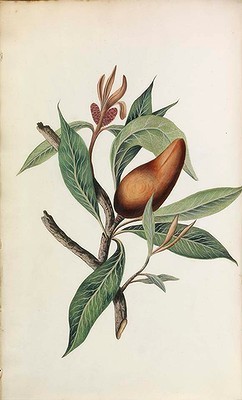
DAVID SCOTT MITCHELL: The library is named after David Scott Mitchell (1836-1907) who donated what has been described as the world's largest private collection of a particular region – Australasia and the Pacific, with over 60,000 books, maps, journals, pamphlets, paintings, and a bequest that still financially benefits the library today.
He appreciated the importance of collecting primary sources - "Australia's DNA", from which we are still in the process of interpreting our past. Indeed, we are at the moment still debating whether to describe the European arrival in Australia as an "invasion" or "colonisation".
I am reading the just published Book Life, the life of David Scott Mitchell byEileen Chanin. It is an exhaustively researched biography which paints a picture of the surprisingly sophisticated Mitchell and Scott families, cultural life in the small colony of Sydney, and the international literary context. This book is long overdue as very little is known about Mitchell, and the book reveals much more about a shy man who was not as reclusive as reputed, but who still remains elusive. He was my grandmother's great uncle and she sometimes stayed with him on her school boarder's weekends. Unfortunately I was too young to ever ask her what he was like. I only remember her saying he was always reading! Only much later have I appreciated the value of oral histories – and identifying people in photographs!
Family skeleton: D S Mitchell's father James was an extremely energetic and entrepreneurial doctor and businessman and conveniently, his wife Augusta Maria (Scott) was wealthy. He was one of the first in the colony to mine for coal in the Hunter Valley of NSW, and this wealth from the now contentious coal primarily allowed David Scott Mitchell to indulge his passion for collecting books, and Australia has benefited from it as well.
GLOBAL ANIMAL: Later this week I am on a panel at the Global Animal: an Animal Studies conference at the University of Wollongong (UOW). I am fascinated by the amount of interesting and wide ranging research in this field in academia, especially about human/animal relationships. Click here for UOW details.
You may be interested to click on the Australian Animal Studies Group News eBulletin and see the range of activities, articles and national and international conferences and events. I was asked to contribute to this edition, and I wrote about my visit last year to Kalimpong and Darjeeling in India - where through the efforts of many people (but Christine Townend particularly), management of the community dog population has seen human rabies eliminated from both those areas. The editor insisted on using a grisly photograph of a dog still out cold from the operation – I wanted to use the pretty white kitten dressed for Diwali celebrations. OK – I seem to have lopped off some tail – last photograph it was her ears!
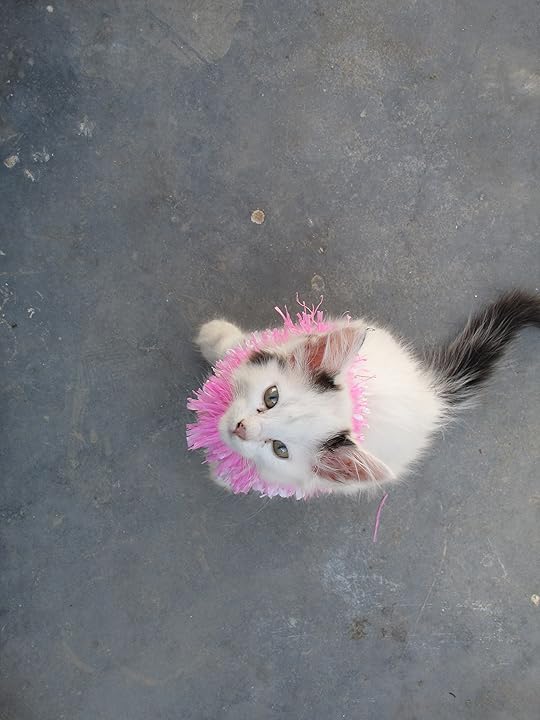
Darjeeling Animal Shelter
A BLOODY BUSINESS: But does gore sell more effectively? The footage of Australian cattle being slaughtered in Indonesian abattoirs has created a very effective public outcry and scandal. Exports of live cattle to Indonesia have been suspended. The Indonesians are offended. Our government has as usual seemed slow to respond constructively, and many cattle owners are left facing huge losses. The industry is worth $550 million (I read various estimates), and some small compensation to producers is presently being offered. Animal welfare is for now at least under overdue scrutiny.
ASYLUM SEEKERS: There has been no equivalent outcry against sending our asylum seekers or refugees to Malaysia, although the United Nations High Commissioner for Refugees (UNHCR) has received many emails of protest. The shock jocks and irresponsible politicians who have exacerbated and exploited this issue are now being countered by a few serious and informative television programs that are actually putting a human face to the refugees and showing just what many of them have been subjected to. Most of them had to flee their country – they were not just setting off to look for a better life.
POLLUTION TAX: Much better to call it a pollution tax – who wouldn't want to prevent pollution? I'm pleased Germany is stepping back from nuclear energy, retiring their 17 reactors by 2022. For years now we have been mired in our carbon/pollution tax debate, but the government is about to finally put a price on carbon. Compensation to coal producers has understandably been a sticking point. The Greens now have a balance of power in the Senate, and are working quite well in an "agreement" with the government. It may be a future direction as many disenchanted Labor voters (like myself) are now leaning towards the Greens instead. They won 12% of the primary vote last election. I wouldn't want the Greens to be running the country on their own, they don't have the experience for a start – but at times they provide the heart, compassion, integrity and conscience on social justice and environmental issues missing in our political discourse.
Incidentally, Rupert Murdoch's newspapers seem to be doing everything in their power to force out this government by constantly portraying them as negatively as possible and marshalling opposition at every opportunity - for example, oxygen given to climate change deniers and opponents of the carbon tax. His mother however, Dame Elizabeth Murdoch, Rupert's 102 year old mother was a signatory to a recent letter to a (rival) newspaper calling for action on climate change. A recent Productivity Commission report detailed various actions by many countries, including India and China, and stated that a carbon tax in Australia would not make us uncompetitive internationally. Some critics argue that because of our reliance on coal, comparisons to other economies are difficult. Worryingly, although 95% of scientists accept the scientific statistics on climate change, public support is slipping, with 39% of Australians now not prepared "to pay a cent" to combat global warming. This is indicative of how badly the government has handled this issue, how long it has dragged on, and how effective the shrill opposition to it has been – more rallies and expensive media campaigns are planned. Isn't this issue so important that there should be bi-partisanship between the major parties?

Jane Goodall's Lunch at Taronga Zoo
JANE GOODALL: I recently had lunch at Taronga Zoo where Jane Goodall was the guest of honour. The Taronga conservation society is in partnership with a new chimpanzee rehabilitation centre – the Tchimpounga Sanctuary in Point Noire, Congo. Over the fifty years since she began studying chimps their numbers have fallen from about 1 million to 300,000. "The most efficient and cheapest way of slowing down global warming is to protect and restore the tropical rainforests. Saving the chimpanzees natural habitat is extremely important….all these problems are so interconnected". Last time I heard her speak she explained how local villagers need to have a certain guaranteed standard of living – food, water, education etc before we we can expect them to protect animals or their habitats. Tony Fitzjohn also emphasizes this with the George Adamson Wildlife Preservation Trust – the needs and involvement of the surrounding villagers are imperative.
Jane Goodall said Australia was not doing well – a failure so far on carbon emissions, a failure to protect water supplies, disappearing endemic species, and no overall environmental strategy to link the surviving patches of habitat. She reassured us however, that individual efforts "add up".
I gave her a copy of A Lion Called Christian but she just said "Oh. Thankyou.", and I wonder if the book was left in the hotel room!
I admire her work enormously and how hard she works. There are Jane Goodall Institutes all over the world, and I particularly like the very successful Roots and Shoots program for schools where groups plan and implement "service learning projects that promote care and concern for animals, the environment, and the human community".
Co-incidentally, I heard on a recent radio program that given the intelligence of chimps and their brain size, living in groups of 5 is the norm,and in a "village" of about 50, while for our brain size humans have a close group of 7 people on average, and a "village" of 150.
UNITY BEVIS JONES: I was recently interviewed by BBC4, and I mentioned Christian's friend Unity Bevis Jones. She came to play with him nearly every day. I was contacted by a friend who said they had recently seen her, and all was fine with her. After the shop Sophistocat where Christian lived on the Kings Road closed, Unity did not know how to keep in touch with us, and was unaware the shop had relocated to Wandsworth Bridge Road where it still is today. I look forward to seeing her when I am next in the U.K.
MISC STATS: We are part of 2 billion users on the internet …. US involvement in Afghanistan costs $120 billion per year… 85% of Australians live within 50 kilometres from the coast…. 50% of the world population now live in cities.
BRAZIL: Now the 5th biggest economy in the world, Brazilians seem to be having their day – and with the Olympics, the World Cup, and the Earth Summit to come etc. Unfortunately their resources/mining boom will test their environmental credentials – and their forest protection laws are being "gutted". The Amazon provides 20% of the world's oxygen and 60% of our freshwater, and recently several prominent environmental advocates have been murdered! Click here to sign the AVAAZ petition to protect the Amazon.
OF THE 1%, BY THE 1%, FOR THE 1%: A disturbing article in Vanity Fair (Rob Lowe cover) by Joseph E. Stiglitz discusses the implications of 1% of the population now owning 40% of wealth in the US, a statistic to frighten us all. They haven't been benevolent in the past, and there is a corresponding under investment in infrastructure, education and research. They are pandered to with low taxation, and this nexus of politics/business/media preserves their privilege. It is hard not to view recent "wars" as business opportunities for arms and weapons manufacturers and companies like Halliburton, and there are spoils like oil to divide. In Australia we see many of our wealthy opposing the mining tax, the carbon tax, and the NBN national broadband network, and resenting and resisting environmental restrictions, and workplace reforms.
WORRIED ABOUT: …the PM Nuri Kamal al-Maliki in Iraq is sounding more and more despotic… the despot in Syria is hanging on but the people bravely keep protesting… Greece and European debt…that 193 rhinos have been killed already this year in South Africa, many of them in the Kruger National Park…a rush to mine cold seam gas even in the suburbs of Sydney, with real concerns about environmental damage through "fracking" and damage to the water aquifers… the capabilities of Thaksin's sister in Thailand…a released but restricted and silenced Ai Wei Wei in China… and if you are concerned for Aung San Suu Kyi and democracy in Burma click here to sign an AVAAZ petition.
JEFFREY MASSON: I just adored reading Jeffrey Moussaieff Masson's The Nine Emotional Lives of Cats. It is a most authoritative book and extremely well written and readable. As a fellow cat obsessive I luxuriated in it. Much of it reinforced my own feelings and my comparatively amateur observations, but there was a lot of new information and ideas to think about, especially about cat's play and curiosity. Jeffrey Masson also refers to other obviously excellent books on cats – none of which I've read. I realised I didn't really play with my cats much, and I never improvise or buy them toys, but I AM always talking to them and having fun with them. His cats go for walks with him! I am under no illusions – food is the foundation of my relationship with mine. The book made me analyse what I really like about cats. Briefly, I find them very soothing, very cool and so self contained. I like their diffidence, their quietness and their natural entitlement. Everything has to be their own idea. This behaviour can annoy some people, but I can find it amusing or challenging. The only thing I really don't like is how totally irrelevant they make me feel after I have fed them!
Jeffrey Masson is presently researching violence in different species, lions especially, and how much killer instinct they have, and who it is directed at. I am hoping Tony Fitzjohn with his long association with George Adamson and his own experience and observations of lions may be able to contribute. I know that the wild lions at Kora waged a full-time war over many years against George Adamson's introduced lions, and killed several of them, although they also mated with several of the lionesses. They were defending their territory which was inhospitable and had limited resources, against intruders. It was miraculous that Christian survived although he ultimately had to leave the area. On his blog Jeffrey Masson described our YouTube reunion with Christian as demonstrating "pure joy" and that "All in all, it remains the single most astonishing video I have ever viewed".

Watercolours courtesy of the Mitchell Library, State Library of New South Wales








June 3, 2011
Peter Eastway, Frank Hurley, Australia, Eikoh Hosoe, Big Tobacco, "A Bloody Business" ABC Four Corners Live Cattle Exports, Tracey Moffatt, Ildiko Kovacs, Jane Goodall, Oceans, Voiceless etc
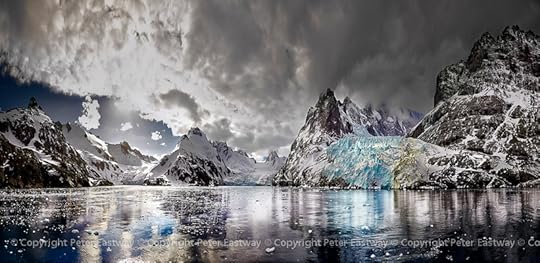
Drygalski Fjord" photographer Peter Eastway
PHOTOGRAPHY: There are many wonderful art and photography exhibitions on at the moment in Sydney. I love these photographs taken on a journey to Antartica by Peter Eastway, who "tweaks" his photographs to convey "how I felt, what it was like, the awe". to view more images. Other great photographs and photographers follow – all doing something different and imaginative with the medium of photography.
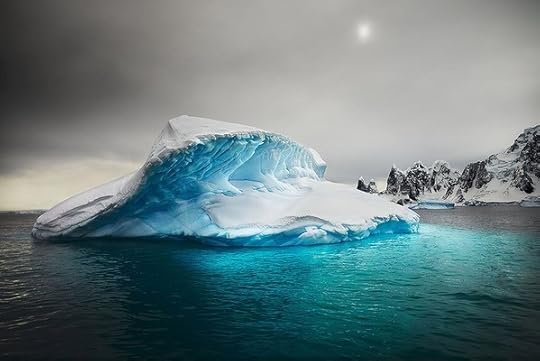
"Port Chariot Iceberg" photographer Peter Eastway
Peter Eastway has been inspired by the famous Australian photographer and Antarctic explorer Frank Hurley (1885-1962).
The 'Endurance' frozen in the Weddell Sea, photographer Frank Hurley
AUSTRALIA: I call this paragraph "Australia" so people can skip it if our news bores you. I try not to be too local or parochial – and try to only talk about issues many of you must face in your own countries. Following on from the last blog and the "lucky country" tag, The Economist (UK) criticizes our unimpressive leaders, and both sides of politics are 'indolent' and "captured by opinion poll-driven "short-termism"". The conservative opposition party "seems to have no philosophical principles at all" and both leaders pander to "xenophobic fears about asylum seekers". We have not made enough of the China boom, and I have just read elsewhere that China now views us as "discriminatory" and a "political risk", and we have slipped to fifth position for the value of their foreign investments.
VISIT: During the visit here of the High Commissioner for Refugees we were reminded that mandatory detention of asylum seekers/refugees breaks international law, and she stated that we are demonizing asylum seekers. We are now hoping to dump them on Malaysia who already have 90,000 refugees, and are not even a signatory to the UN Convention Relating to the Status of Refugees. This will include unaccompanied children.
SHAME: AUSTRALIA'S FUTURE FUND – this Government investment fund holds a $135.4 million investment in nuclear weapons manufacturers, and had to be shamed into dumping investments in cluster bombs! Some future! It's like living in a parallel universe….

The French documentary "Oceans"
FILM: I am looking forward to seeing Oceans which has been described as one of the best wildlife documentaries. Stylistically it is apparently more Jacques Cousteau/French than David Attenborough/British. Click here for a review.
MORE SHAME: The recent television report "A Bloody Business" has created a scandal as we were shown how our live cattle exports to Indonesia are cruelly treated and slaughtered. It was impossible to watch it all as it was so gruesome – but I can still hear their bellows of fear and agony. The Australian Government has known about these conditions in the Indonesian abattoirs for 10 years, and indeed this trade has been overseen by Meat and Livestock Australia – funded by the tax payer. Congratulations to Lyn White and Animals Australia for bringing this to our attention – they have previously put the spot light on our live cattle exports to the Middle East, especially Egypt. Some cattle had to wait their turn and were able to watch the slaughter ahead of them– the last one in the queue was a quivering wreck. Click here for the Four Corners ABC Report. Click here for GetUp Action for Australia to sign petitions to Julia Gillard and local MPs.
Ironically, Australians probably care more about these animals than asylum seekers, although many of them have had to flee for their lives and have had to take huge risks. These people are never identified in the media, as a "human face" may evoke sympathy. Frederika Steen asks in the SMH letters "When did public outrage at animal cruelty overtake our commitment to comply with human rights?"
VEGETARIANISM: Thanks for the emails about this, and the book The Face on Your Plate by Jeffrey Moussaieff Masson has just arrived in the post. I certainly haven't eaten meat since "A Bloody Business" was shown.
JULIAN ASSANGE: Julian in fact won the Sydney Peace Foundation Gold Medal, and this week the Martha Gelhorn Prize for Journalism which rewards work that "challenges secrecy and mendacity in public affairs". The Sydney Peace Prize has just been awarded to Noam Chomsky.
MIDDLE EAST: The "spring" seems to have gone out of the Arab Spring for now. Libya seems a stale-mate, Egypt is still oppressive, the child Hamza Al-Khatib was tortured and murdered in Syria, and everyone in Afghanistan, except perhaps the Taliban, seem sick of the hopelessness and the civilian and military deaths. We lost our 29th soldier this week and the majority of our population are asking "why"? The Israel and Palestine conflict also seems to urgently need new leaders and a new paradigm…
EIKOH HOSOE: There are four seminal series by this marvellous Japanese photographer at the Art Gallery of New South Wales. Hosoe has been inspired by Butoh for many years and has worked with many of the actors. With his arresting photographs, Hosoe, like several of the other photographers mentioned in this blog, wants to convey more than straight photographic documentation, in this case, his feelings for a place where he spent some years of his childhood. He wants to return to Australia and photograph some of our trees, particularly the Moreton Bay Figs.
BIG TOBACCO: It has been fascinating watching the pressure the tobacco industry has been exerting against legislation here for plain packaging on cigarettes which already carry the direst and most grisly images of what smoking can do to you. Our Opposition party however, receives donations from them, and the Opposition leader, although a former Health Minister and show-off fitness fanatic, had to be shamed into supporting the legislation.
GAMBLING: Australians are the worst gamblers in the world – on average US$1300 each year each person. There is an attempt to limit problem gamblers on pokie machines – of course a huge source of revenue for governments. Football players wear jumpers with Centrebet on their back, on playing fields emblazoned with beer commercials, and you can bet online on tabsportbet as the game unfolds!
From the Up in the sky series by Tracey Moffatt
TRACEY MOFFATT: Possibly our most famous Australian artist Tracey Moffatt is exhibiting Up in the sky at the Art Gallery of NSW. Click here to view all the photographs in the series, and Google her!
STYLISH: Barack and Michelle Obama in Ireland and UK. How stylish and charming they are. The Queen actually looked pleased for a change!

Daniel Cunningham, Ildiko Kovacs, Liz Nowell photograph by Stephen Oxenbury
ILDIKO KOVACS: I love Ildiko's paintings so it is marvellous to see a comprehensive survey of her work currently at the Hazelhurst Regional Gallery & Arts Centre until July 3rd 2011. The exhibition is curated by Daniel Cunningham and is accompanied by a superb publication. Ildiko received an excellent review by SMH art critic John MacDonald, click here to read article.
Serpentine 1999, was a gift to the Museum of Contemporary Art by the late Ann Lewis, a very generous art benefactor.

Serpentine 1999 by Ildiko Kovacs
BOOKS: I know I'm very out of date with my reading – with my MA I just read Australian history for years – but I've finally read We Need To Talk About Kevin by Lionel Shriver. Brilliant, dark, funny, a mother/son hate/love story – I adored it but not for all.
MISC STATS: More eBooks are now sold than paperbacks (A Lion Called Christian was Random House's first eBook)…. 10 million dogs are eaten in China each year – but now the wealthier Chinese are having them as pets…..50% of Chinese are now described as "urban" and in India it is 30%…humans consume 272 billion kilograms of plastic per year….
JANE GOODALL: The indefatigable and international treasure Jane Goodall is in Australia again – Click here to view her Australian tour schedule.
ANIMAL VIDEOS: Mark Lewis's Cane Toads: The Conquest has just been released. Some see this sequel as an allegory for our Australian xenophobia; Therasa sent in a link to very cute cats – Click here ; Dale Swanton sent the most touching photographs of dogs collected and huddling with each other after the destruction of the recent tornadoes in the U.S, and joining them on the back seat was a cat!
VOICELESS: Click here to view the Voiceless Grants Program.
PS: Happy World Environment Day June 5th 2011!
The wreck of the Lady Elizabeth in the Falkland Islands, photographer Peter Eastway








Peter Eastway, Frank Hurley, Australia, Eikoh Hosoe, Big Tobacco, "A Bloody Business" ABC Four Corners Live Cattle Exports,Tracey Moffatt, Ildiko Kovacs, Jane Goodall, Oceans, Voiceless etc

Drygalski Fjord" photographer Peter Eastway
PHOTOGRAPHY: There are many wonderful art and photography exhibitions on at the moment in Sydney. I love these photographs taken on a journey to Antartica by Peter Eastway, who "tweaks" his photographs to convey "how I felt, what it was like, the awe". to view more images. Other great photographs and photographers follow – all doing something different and imaginative with the medium of photography.

"Port Chariot Iceberg" photographer Peter Eastway
Peter Eastway has been inspired by the famous Australian photographer and Antarctic explorer Frank Hurley (1885-1962).
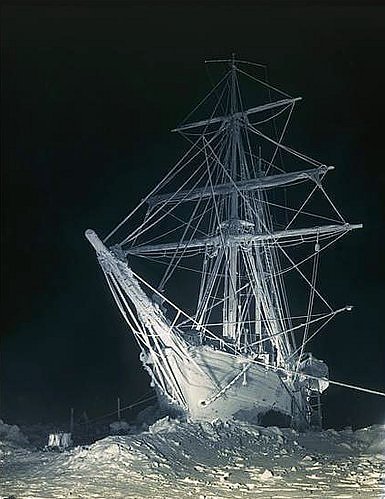
The 'Endurance' frozen in the Weddell Sea, photographer Frank Hurley
AUSTRALIA: I call this paragraph "Australia" so people can skip it if our news bores you. I try not to be too local or parochial – and try to only talk about issues many of you must face in your own countries. Following on from the last blog and the "lucky country" tag, The Economist (UK) criticizes our unimpressive leaders, and both sides of politics are 'indolent' and "captured by opinion poll-driven "short-termism"". The conservative opposition party "seems to have no philosophical principles at all" and both leaders pander to "xenophobic fears about asylum seekers". We have not made enough of the China boom, and I have just read elsewhere that China now views us as "discriminatory" and a "political risk", and we have slipped to fifth position for the value of their foreign investments.
VISIT: During the visit here of the High Commissioner for Refugees we were reminded that mandatory detention of asylum seekers/refugees breaks international law, and she stated that we are demonizing asylum seekers. We are now hoping to dump them on Malaysia who already have 90,000 refugees, and are not even a signatory to the UN Convention Relating to the Status of Refugees. This will include unaccompanied children.
SHAME: AUSTRALIA'S FUTURE FUND – this Government investment fund holds a $135.4 million investment in nuclear weapons manufacturers, and had to be shamed into dumping investments in cluster bombs! Some future! It's like living in a parallel universe….

The French documentary "Oceans"
FILM: I am looking forward to seeing Oceans which has been described as one of the best wildlife documentaries. Stylistically it is apparently more Jacques Cousteau/French than David Attenborough/British. Click here for a review.
MORE SHAME: The recent television report "A Bloody Business" has created a scandal as we were shown how our live cattle exports to Indonesia are cruelly treated and slaughtered. It was impossible to watch it all as it was so gruesome – but I can still hear their bellows of fear and agony. The Australian Government has known about these conditions in the Indonesian abattoirs for 10 years, and indeed this trade has been overseen by Meat and Livestock Australia – funded by the tax payer. Congratulations to Lyn White and Animals Australia for bringing this to our attention – they have previously put the spot light on our live cattle exports to the Middle East, especially Egypt. Some cattle had to wait their turn and were able to watch the slaughter ahead of them– the last one in the queue was a quivering wreck. Click here for the Four Corners ABC Report. Click here for GetUp Action for Australia to sign petitions to Julia Gillard and local MPs.
Ironically, Australians probably care more about these animals than asylum seekers, although many of them have had to flee for their lives and have had to take huge risks. These people are never identified in the media, as a "human face" may evoke sympathy. Frederika Steen asks in the SMH letters "When did public outrage at animal cruelty overtake our commitment to comply with human rights?"
VEGETARIANISM: Thanks for the emails about this, and the book The Face on Your Plate by Jeffrey Moussaieff Masson has just arrived in the post. I certainly haven't eaten meat since "A Bloody Business" was shown.
JULIAN ASSANGE: Julian in fact won the Sydney Peace Foundation Gold Medal, and this week the Martha Gelhorn Prize for Journalism which rewards work that "challenges secrecy and mendacity in public affairs". The Sydney Peace Prize has just been awarded to Noam Chomsky.
MIDDLE EAST: The "spring" seems to have gone out of the Arab Spring for now. Libya seems a stale-mate, Egypt is still oppressive, the child Hamza Al-Khatib was tortured and murdered in Syria, and everyone in Afghanistan, except perhaps the Taliban, seem sick of the hopelessness and the civilian and military deaths. We lost our 29th soldier this week and the majority of our population are asking "why"? The Israel and Palestine conflict also seems to urgently need new leaders and a new paradigm…
EIKOH HOSOE: There are four seminal series by this marvellous Japanese photographer at the Art Gallery of New South Wales. Hosoe has been inspired by Butoh for many years and has worked with many of the actors. With his arresting photographs, Hosoe, like several of the other photographers mentioned in this blog, wants to convey more than straight photographic documentation, in this case, his feelings for a place where he spent some years of his childhood. He wants to return to Australia and photograph some of our trees, particularly the Moreton Bay Figs.

BIG TOBACCO: It has been fascinating watching the pressure the tobacco industry has been exerting against legislation here for plain packaging on cigarettes which already carry the direst and most grisly images of what smoking can do to you. Our Opposition party however, receives donations from them, and the Opposition leader, although a former Health Minister and show-off fitness fanatic, had to be shamed into supporting the legislation.
GAMBLING: Australians are the worst gamblers in the world – on average US$1300 each year each person. There is an attempt to limit problem gamblers on pokie machines – of course a huge source of revenue for governments. Football players wear jumpers with Centrebet on their back, on playing fields emblazoned with beer commercials, and you can bet online on tabsportbet as the game unfolds!
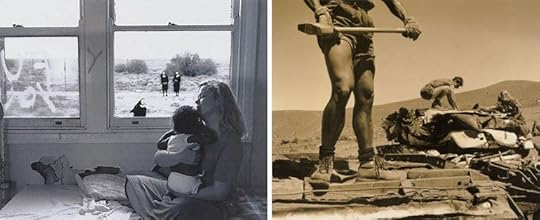
From the Up in the sky series by Tracey Moffatt
TRACEY MOFFATT: Possibly our most famous Australian artist Tracey Moffatt is exhibiting Up in the sky at the Art Gallery of NSW. Click here to view all the photographs in the series, and Google her!
STYLISH: Barack and Michelle Obama in Ireland and UK. How stylish and charming they are. The Queen actually looked pleased for a change!

Daniel Cunningham, Ildiko Kovacs, Liz Nowell photograph by Stephen Oxenbury
ILDIKO KOVACS: I love Ildiko's paintings so it is marvellous to see a comprehensive survey of her work currently at the Hazelhurst Regional Gallery & Arts Centre until July 3rd 2011. The exhibition is curated by Daniel Cunningham and is accompanied by a superb publication. Ildiko received an excellent review by SMH art critic John MacDonald, click here to read article.
Serpentine 1999, was a gift to the Museum of Contemporary Art by the late Ann Lewis, a very generous art benefactor.

Serpentine 1999 by Ildiko Kovacs
BOOKS: I know I'm very out of date with my reading – with my MA I just read Australian history for years – but I've finally read We Need To Talk About Kevin by Lionel Shriver. Brilliant, dark, funny, a mother/son hate/love story – I adored it but not for all.
MISC STATS: More eBooks are now sold than paperbacks (A Lion Called Christian was Random House's first eBook)…. 10 million dogs are eaten in China each year – but now the wealthier Chinese are having them as pets…..50% of Chinese are now described as "urban" and in India it is 30%…humans consume 272 billion kilograms of plastic per year….
JANE GOODALL: The indefatigable and international treasure Jane Goodall is in Australia again – Click here to view her Australian tour schedule.
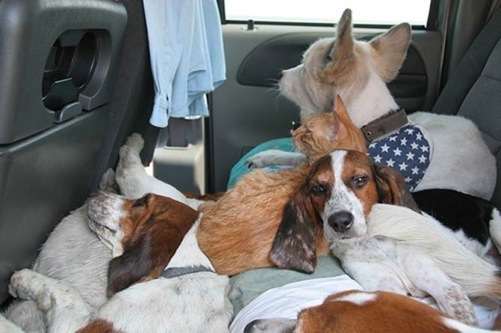
Rescued from the tornado
ANIMAL VIDEOS: Mark Lewis's Cane Toads: The Conquest has just been released. Some see this sequel as an allegory for our Australian xenophobia; Therasa sent in a link to very cute cats – Click here ; Dale Swanton sent the most touching photographs of dogs collected and huddling with each other after the destruction of the recent tornadoes in the U.S, and joining them on the back seat was a cat!
VOICELESS: Click here to view the Voiceless Grants Program.
PS: Happy World Environment Day June 5th 2011!

The wreck of the Lady Elizabeth in the Falkland Islands, photographer Peter Eastway








May 21, 2011
Tony the Tiger, Cooper the Cat, Ai Weiwei, Jeffrey Masson, Carbon Emissions, Middle East, Rudyard Kipling, Christian the Lion etc
TONY THE TIGER: It was extremely good news that the ALDF won the court case for Tony the Tiger. You can sign this petition click here to try and have him released prior to December when the permit will not be renewed. There are unanswered questions however including who will have 'custody' of him and determine where he goes next? It is essential to get him out of his cage as soon as possible to make his last years more enjoyable.
COOPER THE CAT: Every cat owner wonders where their cat goes to and this is one of the reasons I love Cooper's photographs! For over three years he has been fitted once a week with a lightweight digital camera which takes a photograph every two minutes. Who would have thought the photograph (at top) was taken by a cat? He now attends his own exhibition openings and media interviews – which would be an impossibility for me with my cats. Although I know it sounds hypocritical coming from me, I have noticed more animals being used inappropriately lately – a lion cub unnecessarily in a Vanity Fair photograph, and an elephant in the city at the opening of the film Water for Elephants.

'Risqué' by Cooper the Cat
AUSTRALIA: In 1964 Donald Horne, a well known academic and writer described Australia as "a lucky country". This quote was misunderstood as he actually went on to say "run by second rate people who share its luck". This seems particularly true at the moment. 25% of our mining exports go to China and were worth $58 billion in 2010, 37% higher than in 2009. This helped us survive the GFC so successfully. Political "discourse" has been reduced to whether or not there should be a carbon tax, and both major parties competing to be meaner to asylum seekers and refugees, and people on welfare. Shock jocks are inflaming their listeners, and politicians are playing to them primarily, although many would probably not even bother to vote if they didn't have to.
UK: Congratulations to the government and the bi-partisan support to cut carbon emissions by 50% (compared to 1990 levels) by 2027, although funding for clean-energy technologies has been cut. In Australia, our negative Opposition persist in their pretend policy, ranting against a carbon tax. The myth of carbon storage and capture ("clean coal") seems to have finally died. Malcolm Turnbull, who lost his position as the Leader of the Opposition over his support for action on climate change is looking thinner – don't they say that's a sign someone is about to make an attempt for the leadership? It was true in the case of a newly trimmed down new Premier of NSW who is already looking as bad as his predecessors – retrospective legislation over solar panel rebates, and courting the dreaded Shooters and Fishers Party, by allowing more hunting in National Parks.
EASTER: I know Easter is now a distant memory, but as a Republican, an agnostic, and a pacifist I felt very marginalized over Easter and saw ironies and hypocrisy everywhere, and resented everything was closed! Amnesty International has just criticized Australia for a lack of leadership on human rights issues (discrimination against indigenous communities, asylum seekers and refugees), but our PM was lecturing the Chinese about human rights while we were getting tougher on asylum seekers who dared to protest in detention over the long delays in their processing. There are 7000 locked up in detention here including women and children, but there are 20 million refugees in the world. Many are fleeing wars where Australians are actually fighting – like Afghanistan. A proposed new political fix is to send them to Malaysia, a country with a reputation for not treating refugees humanely. After Easter we also had Anzac Day "remembering" "celebrating" or even "romanticizing" a famous military defeat. One can be very grateful for those who fought for Australia (or were cannon fodder for Britain), especially those that made the ultimate sacrifice, but all our remaining old soldiers seem to say war is just appalling and should be avoided if possible. The last World War I veteran just died – Claude Choules joined the navy at 14 and lived to be 110. Our other colonial cringe over Easter was Royal Wedding fever, and I must admit as an antidote I loved Dame Edna Everage's bitchy commentary on television.
CHINA: The Chinese talk about their "advances on human rights" but we seem to be witnessing the opposite – the most aggressive crackdown for decades. It has been good to see the international art world unite with concern for artist Ai Weiwei and after 43 days his family has finally been able to at least contact him.
MIDDLE EAST: 600-800 killed in Syria, with 8000 detained since the crackdown…finally sanctions against the regime…recriminations (and questionable jubilation) over Osama's execution…Fatah and Hamas in Palestine kiss and make up…Palestinians protesting on Israel's various borders…the International Criminal Court moves on the Gaddafi regime…and unfortunately Obama's recent attempt to provide an overarching narrative and a way forward for the emerging democracies in the Middle East has been mostly met with disappointment or hostility. Platitudes about international aid and economic support, no "circuit breaker" on the Israel/Palestinian conflict, and Saudi Arabia not even referred to, has only fed cynicism of U.S. motives.

With my sister Lindy Bourke at The Cross Art Projects
JEFFREY MOUSSAIEFF MASSON: At the opening of my exhibition of Indian tribal art, I met Jeffrey Moussaieff Masson. He is very well-known for his books about the emotional life of animals and I have ordered several. I am especially looking forward to The Nine Emotional Lives of Cats – A Journey into the Feline Heart. "We need cats to need us…It unnerves us that they do not. However, if they do not need us, they nonetheless seem to love us". His book The Face on your Plate may make me a vegetarian! His blogs are very interesting to read and his website is very informative. His blogs are more like essays or a meditation on one subject – most recently he asks Do Animals Get Depressed? and Shark Attacks: What's the Truth? He is very well-educated in various disciplines, and he is making a very valuable contribution to our understanding of animals, and human and animal relationships. View his site www.jeffreymasson.com.
MUHAMMAD YUNUS: I have long admired Mr Yunus for pioneering micro loans to the world's poorest people. He was recently forced to resign from the Grameen Bank he founded in Bangladesh and which now has 8 million members.
SYDNEY PEACE PRIZE: Awarded to Julian Assange – congratulations! Isn't it a relief to have a highly intelligent if enigmatic "celebrity" in the spotlight for a change?
ACCIDENTS: At a recent steeple chase horse riding event in Victoria a horse died, many jockeys fell, and onlookers were injured when a riderless horse jumped a fence. This "sport" seems unacceptably dangerous.
RUDYARD KIPLING: I've just read Kipling Sahib: India and the Making of Rudyard Kipling by Charles Allen. It deals very comprehensively with the influence of India and other factors that made him such a successful writer in his day. It was hard searching for clues to his extraordinary empathy with animals as it wasn't the central thesis of the book, and he had systematically destroyed as much information about himself as he could. As a very young child "Chang" his Chinese pug had been his "best playfellow". It seems that there was a confluence of influences in his late 20′s. He was already very well-known, he was about to write the Jungle Books, the Just So Stories, and his "masterpiece" Kim. He had just had his first child, and he was asked to write some children's stories by a well-known writer. A primary influence was his early childhood in a tropical Bombay garden, and the stories told to him by his Indian ayah. Apparently every European child raised in India heard these stories from the Jatakas which were originally based on Buddhist moral tales, and were about the interaction between birds, animals and men.
The other influence was his tolerant, compassionate and rather wonderful sounding father whom he sometimes collaborated with, and who had just published and illustrated his own book Beast and Man in India: A Popular Sketch of Indian Animals in their Relations with the People.
Interestingly, I've just noticed that my late godparents Beth and Mick Busby gave me The Second Jungle Book, in addition to my most favourite book Orlando the Marmalade Cat, and I do wonder what influence these books had on me!
MISC STATS: …soon there will be 700 billion people in the world…Australia anticipating 36 million by 2050 (how will we manage our finite resources and live sustainably?)…20 species and sub species of birds have become extinct since European settlement of Australia (1788), and presently 30 are listed as critically endangered…tropical forests around the world are disappearing at the rate of about 13 million hectares each year (the size of Greece)…there are 2.14 billion Christians – and growing in Africa, Asia etc…only 14% of people now get their news from the newspapers…and tennis player Novak Djokovic has had his 39th consecutive win.
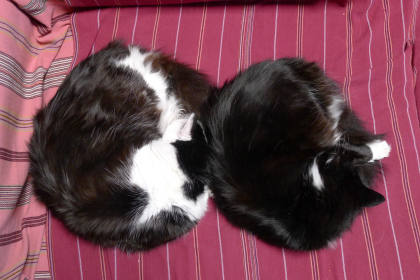
My Cats
CHRISTIAN THE LION: Dana Broe emailed and asked me to clear up a few discrepancies about Christian on Wikipedia and in the Daily Mail. We flew Christian to Kenya in 1970. We returned and saw him in 1971 (the YouTube reunion), and again in 1972. He was last seen in early 1973 heading in the direction of Meru National Park. As a male it was impossible for him to remain at Kora competing for the limited resources with the wild male lions there. I now understand if he had established his own pride somewhere else, it would have been impossible for him to leave them unprotected and come back and see George Adamson and his assistant Tony Fitzjohn, who is now the Field Director of the George Adamson Wildlife Preservation Trust This information is in our revised A Lion Called Christian (2009), and Tony writes about this in his recent book Born Wild.
Lions can live approximately 9-12 years in the wild (up to approximately 18 in zoos), and George Adamson thought that as Christian grew into one of the biggest lions in Kenya, he could defend himself, and the effective "bush telegraph" never reported the sighting of a lion this size, dead or alive. So we are optimistic or hopeful he continued to lead a natural life for several more years at least.
PS: Our thoughts are with those people and animals currently struggling with floods and other catastrophic events particularly in Quebec and America. Recent reports say there is mounting scientific evidence linking climate change to the intensity and frequency of these natural disasters.








April 15, 2011
Michael Leunig, Blogging, Harley the Dog, Tony the Tiger, India, Carbon Tax Rally, Christian the Lion, Jangarh Singh Shyam, Australian Landscape Photography
MICHAEL LEUNIG: I'm hardly going to comment on the state of the world this time (probably a relief for us all) as I think Michael Leunig, one of Australia's most brilliant cartoonists, says it all. I encourage you to check out his website as his body of work over many years has been extraordinary – funny, sad, insightful, poignant etc etc. Click here
BLOG: I've been blogging now for over a year. I love it as a medium, although I have to confess, as I spend so much time on the computer anyway, I don't surf at all, or read as many other blogs as I would like to. I don't know how so many billions of people have time for social media like Facebook, but I love the new community, information flow and communication it has built. It is a great tool for political activism as we have seen recently in the Middle East.
I very much appreciate many of you drawing my attention to relevant and related information. I do respond more than I appear to although I view this as working together for causes we believe in, rather than developing personal relationships. Although my much younger agent would like me to comment on a more regular basis…I don't really want to interrupt or bore you with my day-by-day thoughts or reactions. After writing what seemed like a very long "exegesis" for my Master of Arts in 2008, I like the amount of words required in the blog on each idea– not too few and not too many, and it ends up a near monthly essay/diary on what has transpired…or how I have been feeling…or what has caught my attention. Like a lot of people, I have strong opinions on the affairs of the world, and I can recommend a blog as a way of feeling less impotent – feeling that you are actually doing something, articulating a response rather than just complaining and worrying. While I feel I have a "voice" through a blog – however small, I'm certainly not part of the "new journalism", but it is interesting what you can learn and read between the lines in some newspapers and magazines if you read widely and attempt to get to the real story.
I especially enjoy looking for striking photographs to post – talking politics and climate change, for example, can be a little dry!
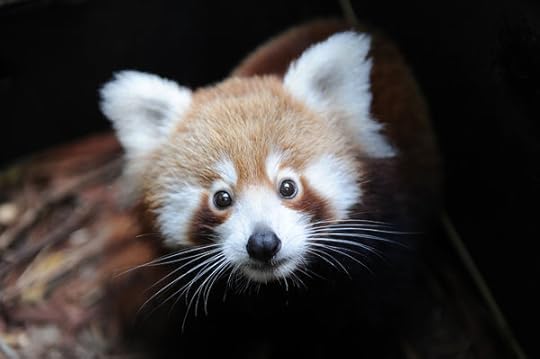
This rare red panda cub was born in December 2010 at Taronga Zoo, Sydney. Photograph by Peter Hardin
Over the last two years we have travelled to many places around the world and given many interviews about Christian, and of course it was a great pleasure to share our experiences with him, and to be given the opportunity to talk about the urgency of animal and wildlife conservation. Christian's story has elicited such a positive, loving, life-affirming response from most people, and it has been an antidote to some of the stress inflicted by the Global Financial Crisis, the natural catastrophes, and the unrest throughout the world. However, we did have Christian over 40 years ago, and I have subsequently had a career and a life which I've actually loved, and I have not been asked once what I have done in the intervening years! (My agent just says "get over it"!).
So the blog has been an opportunity to discuss where appropriate other things that I find important – which includes anything to do with Aboriginal people and their dispossession and subsequent disadvantage, art (especially Aboriginal art), politics, the world – past, present and future.

Harley
Monika Laryett-Olson's website is an example of what has given me particular pleasure with the blog – people sending me their own animal stories. I've loved many of them, and a few have been riveting – like this one – very well written, with superb photographs, and a story like Harley the dog's sixth sense that can make me cry. I feel these stories are building into a valuable archive that with permission I may publish sometime. Animals enrich our lives so much – and they seem to give comfort, companionship, love and understanding, and absorb some of the stress we all feel. So Leo the cat… or Pluto the dog, and all the others, I've loved and kept your photographs – thank-you!
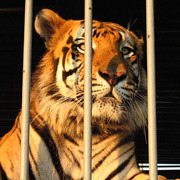
Tony
TONY THE TIGER: I think of him every day like many other people and I am determined to help in any way to have him removed from his cage to a better life. I contacted Virginia McKenna to ask her advice, and she responded that the Born Free Foundation (US) is very aware of him, and the legal complexities surrounding him. The Animal Legal Defence Fund in America has just filed a lawsuit against the Louisiana Department of Wildlife and Fisheries. For more information and to sign their petition click here, and circulate! Also a recent email from the tireless Dee De Santis listed another petition to sign through change.org . So let's really support this and encourage others to participate. So many other animals are also condemned unnecessarily to a pointless life for other people's satisfaction or greed and for me Tony seems to be a symbol of this.
INDIA: There are apparently only 3000 tigers left in the wild, and according to a recent census, approximately half are in India. In the 1970s the Indian tiger population dropped to nearly 1000. A major effort to establish reserves and increase protection has resulted in numbers stabilising and slightly increasing. But as M.K. Ranjitsinh Chairman of the Wildlife Trust of India and well known tiger campaigner said recently, "The human population continues to grow and that means reduction of prey, threats to the isolation of the tiger habitat and increasing danger of direct human-tiger conflict. We may have won a battle but you have to win the war".
A recent Travel article listed several interesting sounding innovative eco-tours and wildlife lodges in Madhya Pradesh focused around tiger conservation. They can promise a rewarding experience, if not always spotting a tiger. I only saw a tiger footprint in Assam last year, but I actually think that is quite healthy – I'd rather they remained safe and out of sight.
BAN: Wasn't it emotional seeing Ban the dog rescued from the house of a roof floating out to sea three weeks after the Japanese tsunami, and being reunited with his owner? The World Society for the Protection of Animals (WSPA) is asking for donations for the thousands of animals in Japan that need our help, donate.wspa.org.au/japan.
I've wanted the blog to work as a notice board for any related issues people want to draw our attention to, and I love the speed and effectiveness of concerted action through internet activism. I've tried to mention as many organisations and individuals as possible whose work I admire or are worthy of support, and it has been a huge learning curve over the last few years for me once again to be actively involved and understand where the conservation debates have (or have not) advanced to. The conservation movement was extremely influential in the 1970′s, starting with the Adamsons and the popularity of Born Free, and Jane Goodall, David Attenborough, and the work of the World Wildlife Fund remain giants in the field today.
CARBON TAX RALLY: There is a controversy in Australia over a proposed tax on carbon. Shock jocks have organised several rallies against it, with some people holding offensive placards about our Prime Minister Julia Gillard. I attended with many other people a rally in support of the tax at the same time which was organised by the effective internet activists GetUp! I do think I've been more strident and politicised lately, but I think there is an unattractive polarisation happening in the community. I feel we are confronted by issues that require urgent action and we can't be too patient or passive. A few of you have criticised me, and that is fair enough. Someone thought me mentioning Bush and the neo-cons was living in the past, but we are still living with their legacy. Someone else asked why I backed "one side" over the other, but realistically I don't think politics is like a fruit salad where you pick a bit of this and a bit of that.
Usually most people hold a consistent philosophical view. A Sydney Morning Herald editorial on the environment recently succinctly summed up this difference: the "left" is "admiring of a pristine wilderness in which only man is vile" and the conservatives "see a world to be exploited and enjoyed". The editorial mentioned the Shooters and Fishers Party, a small motley collection of people who by an anomaly in our electoral system have ended up with the balance of power (with the Christian Right) in our Upper House of Review after the last State election, and love shooting elephants in Zimbabwe for fun and "conservation"! They want to shoot in the National Parks which of course I oppose.
In general, I feel that in the current popularist climate I am part of a resented minority for caring for people less fortunate or different to oneself, or for caring for wildlife and the environment ahead of money, consumerism and unsustainable development. The rally for the carbon tax was pleasantly reassuring that so many others felt just the same. Unfortunately our political parties seem to be in a "race to the bottom", encouraging mean-spiritedness and short-sightedness, demonising difference, and instilling fear.
Bara Singha (deer with 12 antlers) by Jangarh Singh Shyam
EXHIBITION: I am currently staging an exhibition of a selection of Indian tribal and village art at The Cross Art Projects in Sydney. I have collected many of the works since I first went to India in the 1980s. These include tribal works by the Warlis, and Madhubani and Khovar art from Bihar. Highlights are paintings and prints by Jangarh Singh Shyam who I first met in the late 1980s, and who also participated in a cultural artist's exchange I organised with Aboriginal artists at the National Crafts Museum, New Delhi in 1999. He tragically died in Japan in 2001.
EXHIBITION: Photography & Place Australian Landscape Photography 1970s Until Now, is a thoughtful and often beautiful exhibition curated by Judy Annear, one of Australia's leading curators. It is at the Art Gallery of New South Wales until 29 May 2011. It contains works by some of my favourite photographers including Michael Riley (1960-2004), Ricky Maynard, Jon Rhodes and Wesley Stacey, and examines different and changing ideas about landscape and place.
SHAME FILE: Hillary Clinton for describing Bashar-al-Assad of Syria a "reformer"; Christopher Hitchens for trying to credit the invasion of Iraq (and his surprising support for it) with the popular uprisings in the Middle East; China for the arrest and current disappearance of Ai Weiwei, an internationally well known artist (although he did always surprise me in interviews with just how refreshingly frank about China he was); and the Director of the Berlin Zoo for wanting to proceed with the stuffing of the "just a polar bear" Knut.
CONGRATULATIONS: The United Nations finally seeming more pro-active – in the Ivory Coast.
STATS: There is a 40% increase in the hole in the atmosphere above the Arctic; 50,000 coal fired power stations in the world are supplying 41% of the world's electricity; China is building one new power station a month, although they are supposedly going to be more highly efficient and lower polluting.
CHRISTIAN VIDEO: There is a new video clip post with more images of Christian taken from the original documentary, click here.








March 27, 2011
Arctic, Japan & Libya etc, Nuclear, Assange, The Dog Whisperer, Knut, YouTube, Lions, Elizabeth Taylor, & Earth Hour
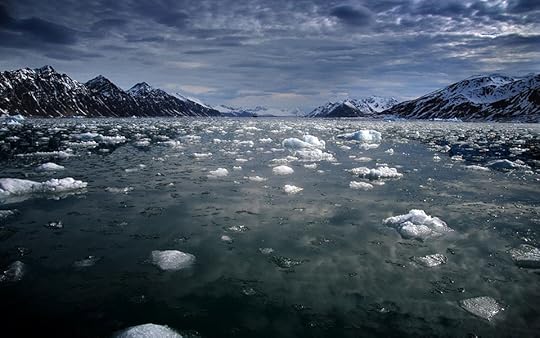
Shattered Diamonds by Emma Rowan-Kelly
I very much enjoyed the recent photographic exhibition innocentarctic in Sydney by Emma Rowan-Kelly, and you can see other marvellous images on www.innocentarctic.com. Although her photographs raise issues of climate change with melting glaciers and shrinking animal habitats, they were an antidote to the world's news. Like many of you, I have woken each day for months now and immediately and with trepidation listened to or watched the news. How high did the flood rise? Did the cyclone do as much damage as they feared? Have they found any more survivors from the earthquake and tsunami? How high are the radiation levels? How many demonstrators in the Middle East have been shot? Has Dictator X gone? Is America actually supportive of these pro-democracy uprisings?
I feel depressed by the unrelenting human (and no doubt animal) losses and dispossession through these natural disasters, and apart from making donations, feel totally impotent. I am in awe witnessing the courage and sacrifices in the Middle East as these people struggle for freedoms most of us just assume. And then I feel guilty for feeling down - I'm alive. Those I love are safe. I live in a beautiful place. I'm not wet or cold or hungry or homeless, or being shot at.
JAPAN & LIBYA ETC: Japanese stoicism, bravery and calmness is extraordinary. Over a quarter of a million people are still homeless. Men are sacrificing their lives battling with the damaged nuclear reactors in the service of their country. Their economy has been underperforming for decades – let's hope the government has the will, innovation and resources to rebuild in a way that stimulates the economy. The Japanese have done it before.
Wasn't it nerve-wracking waiting to see if the United Nations would act in time to protect Libyan civilians? The confusion over the leadership and what the actual objectives are, is extremely disquieting. The Arab League evaporated like the mirage they seem to be. Tony Blair, who has championed Gaddafi's international rehabilitation, is understandably quiet. I fear a stalemate and "mission creep", or worse. Are we in another war? Let's not forget the people in Bahrain and Yemen, where Saudi Arabia sent in troops against the people. These governments are too useful for the US and any pro-democracy actions are not likely to receive any support from them whatsoever. What happens in Syria seems to be a very influential factor in the US/Israel/Iran political complexities. After the fiasco of Iraq, if America actually supported these popular uprisings against such repressive regimes, (rather than their hypocritical very calculated responses, like their calls for "stability"), they would have the opportunity to redeem themselves in the eyes of the Arab world. My friend in Cairo is already depressed by what is looking like a continuation of the status quo in Egypt, with as little change as possible and real democratic change a long way off. He reports that the Muslim Brotherhood are certainly active, but may be splitting into factions due to generational and ideological differences.
SAYONARA NUCLEAR: It will for the time being be much harder to argue in favour of nuclear energy. I was surprised to read that the 55 Japanese nuclear reactors supply only 20-30% of Japan's electricity, while oil provides 50%. There are proposals for two new reactors to be built in the same earthquake zone, on the coast and one is beside an active volcano! While nuclear is in some respects "cleaner" than coal – radiation leaks notwithstanding, the issue of nuclear radiation waste is entirely unresolved. Astoundingly, it has not even been mentioned lately. Google tells me there are 507 nuclear reactors in the world, and it is estimated nuclear waste is estimated to remain hazardous for 240,000 years! What an appalling legacy to leave future generations. I live within 20 kilometres of Australia's only nuclear reactor, but while nuclear energy is mentioned in the energy debate, neither political party in Australia has proposed building any more reactors at this stage, or dared specify a particular location. Hypocritically, we are the world's third biggest exporter of uranium which earns us a billion dollars each year.
JULIAN ASSANGE: Julian recently tweeted that the article on him by Robert Manne in The Monthly magazine was "easily the best" – and the site crashed! Click here to read the article. Robert Manne is a highly respected academic and he thoroughly examines Julian's life, influences, philosophical development and ambitions. Not surprisingly, Assange believes that Western political and economic elites offer "a counterfeit conception of democracy and a soul-destroying consumption culture". The state does "what it can get away with" but also "what we let it get away with". Manne says that WikiLeaks and the idea of whistleblowers from all countries passing on information (securely) is one of the few original ideas in politics, but Assange hoped for an "engaged analysis from the blogosphere" which hasn't happened, and instead he thinks "indifferent narcissists" repeat "the views of the mainstream media on the "issues de jour" with an additional flourish along the lines of "their pussy cat predicted it all along". This sounds frighteningly like me!
Vanity Fair (the Justin Bieber issue) has an article on the difficult collaboration between Assange and newspapers such as The Guardian and The New York Times who published some of the leaked cables. These leaks have "changed the way people think about how the world is run" – and it would be fascinating to read some current US cables now! While he is playing a very dangerous game and his life could be in danger, Assange appears dictatorial, manipulative and secretive – so much for "transparency"! As this isn't a gossipy blog, I haven't confessed before to knowing Assange's father John Shipton for years.
Poor Private Bradley Manning - in solitary confinement, stripped naked and woken regularly sounds like torture to me. Wasn't it more remiss of the authorities to allow a kid such easy access to such sensitive material? I read there was a protest outside his prison with activists including Daniel Ellsburg arrested, and that a Bradley Manning Support Network has been created.
FAR RIGHT: In the same issue of VF, there is an article on the Far Right, called That's Political Entertainment. "The old punditocracy, grounded in facts, credentials, and rational debate, has been overpowered by a new breed of political entertainer, who deals in raw emotion". These people "aren't trying to change the way people think… they don't want their audiences to think at all". In France, Sarkozy has forced the deportation of Romas, and Le Pen's clever and more polished daughter Marine is probably more dangerous than her father. Multiculturalism has now been declared a failure in other European countries including Germany, but fortunately, a majority of Australians realise multiculturalism has been highly successful and beneficial here. The US has the Tea Party, Sarah Palin and Fox News amongst others. In Australia, the shock jocks are getting noticeably shriller, encouraged rather than restrained by some conservative politicians. Recently a small but vocal motley collection of people brandishing and shouting ugly slogans were bussed to Canberra to protest ostensibly against a carbon tax.
The Climate Change "debate" is very much back on the agenda here but it is extremely frustrating. A few years ago a majority of people in Australia believed in human-induced global warming, and like many other countries, including China, we should now be discussing and implementing urgent changes and reforms, not arguing if climate change exists.
We have just had a NSW State election where the conservative party has had a historic landslide win after 16 years. They say governments lose elections rather than oppositions win them, and this government became blind to the effect on the electorate of their years of factional wars, cronyism, scandals and incompetence. It has been government by spin, the 24 hour media cycle and focus groups, replacing real leadership, long-term vision, planning and the maintenance of infrastructure.
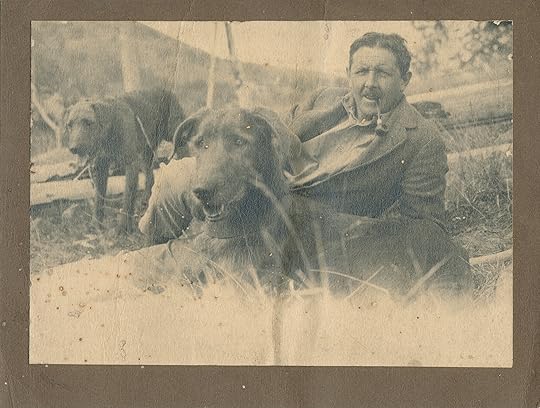
My grandfather Ulick Bourke with his Irish wolfhounds Biddy and Mick
There is a boom in puppy farming in Australia – apparently 500,000 each year, often bred under very unnatural circumstances, yet 250,000 dogs and cats, most of which would make lovely family pets, are euthanized each year. It is a metaphor for our lives unfortunately.
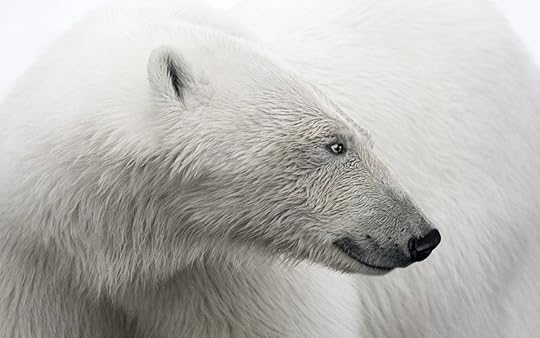
Pure White by Emma Rowan-Kelly
VALE: Knut, Berlin's world-famous polar bear who was rejected by his mother and reared by hand has recently died, aged 4. He was enormously popular, generating millions of dollars for the zoo, but the constant attention and the unnatural life in a zoo caused abnormal behaviour and probably premature death. I think the zoo failed badly in their duty to care for him properly as he was constantly tormented in his enclosure by 3 older female bears, including his mother. The suggestion of having him stuffed is so indecent I can hardly bear to mention it.
VALE: Elizabeth Taylor was one of the great movie stars of the Twentieth Century. I particularly remember Cat on a Hot Tin Roof, Reflections in a Golden Eye, Suddenly Last Summer, and Who's Afraid of Virginia Woolf? She was one of the earliest AIDS activists. A friend sent me this link to a marvellous article by Camille Paglia who likened Taylor to "a luscious, opulent, ripe fruit", and she very amusingly compares her to other stars past and present. Click here
CHRISTIAN THE LION YouTube: Click on the image for Christian's Reunion.
I recently read many of the comments posted on this site. We are grateful to Lisa Williams for originally posting the reunion footage on YouTube, and TadManly2 for reposting (twice) and adding the Whitney Houston back track which especially helped it go viral. YouTube deleted his original account "because I'd posted a few of my favourite film clips" and we too regretted the 20 million plus hits and 20,000 comments that vanished! Most of the comments were very touching, and in general so positive and life affirming. A few people claimed the footage is faked, but I think the footage exists as one continuous take. I can assure everyone it is true – I was there!
I'm glad people enjoyed viewing Christian's documentary again recently in Australia, and Danni Minogue tweeted it was being shown and was "one of my all time fave documentaries".
LIONS: American hunters are emerging as a strong and growing threat to the survival of lions, killing them for sport and trophies. One hundred years ago there were approximately 200,000 lions in Africa, and now estimates are between 23,000 to 40, 000. There are 70% fewer lions since Christian 40 years ago. Shrinking habitats and conflicts with local villagers are also factors, but between 1999 and 2008 64% of the 5663 lions killed for sport went to the US.
EARTH HOUR: I think turning off the lights for an hour around the world is an admirable global initiative, and the chance to think about some of the implications of our increasingly unsustainable lifestyles. I walked around Bundeena for an hour and I must say far too many lights were on! With less electricity we would obviously watch less television, and spend less time on the computer. We should insulate our houses more effectively, install solar panels and water tanks, grow our own fruit and vegetables, and use public transport. I think we would have more time, and talk more to each other, and possibly be closer and more effective communities. Lessening our dependence on fossil fuels and reducing our carbon emissions will be extremely difficult. Why is there seemingly so little investment in research and development for alternative energy technologies? Isn't it time to really demonstrate our human ingenuity?
Serrated Reflection by Emma Rowan-Kelly








Anthony Bourke's Blog
- Anthony Bourke's profile
- 18 followers


